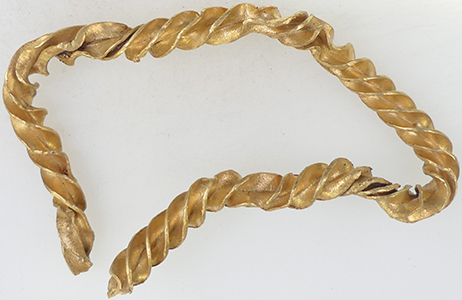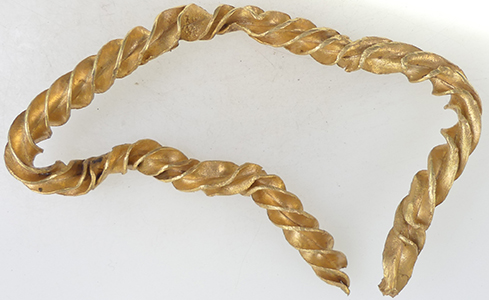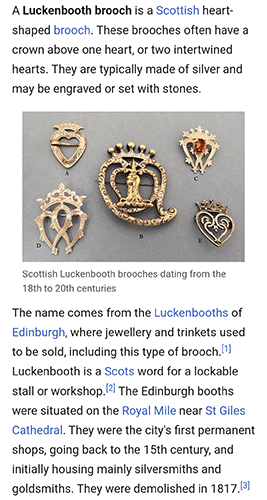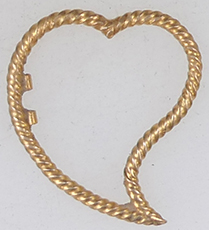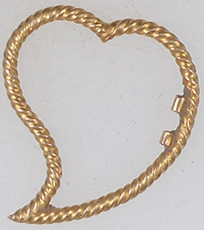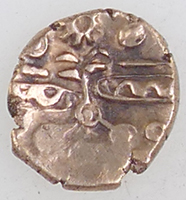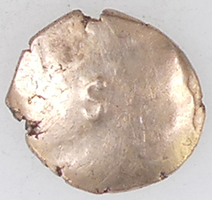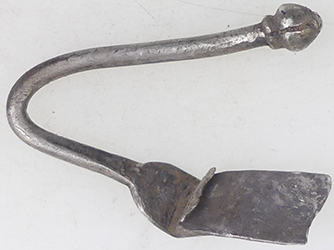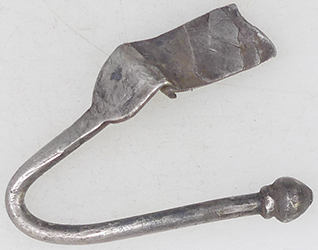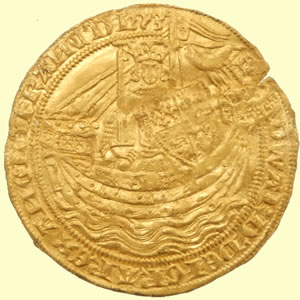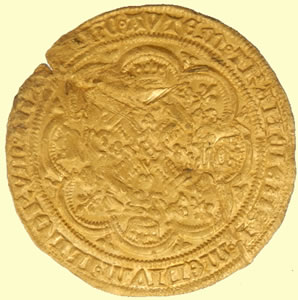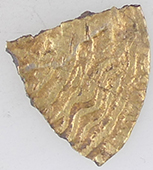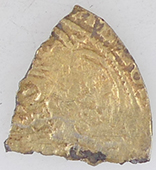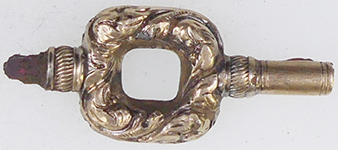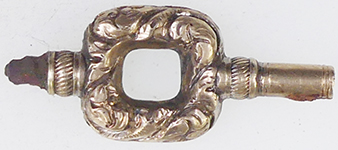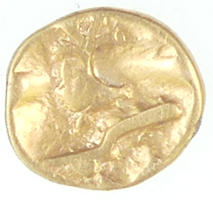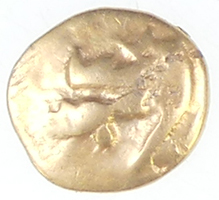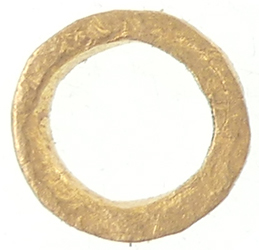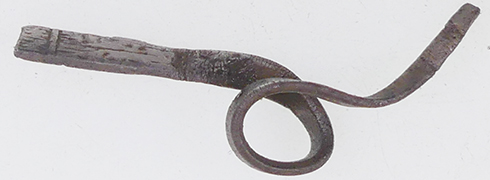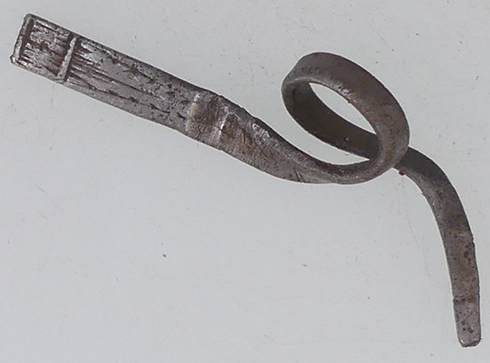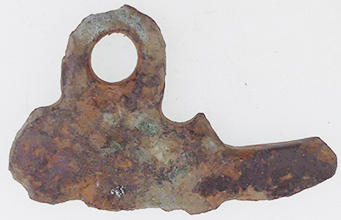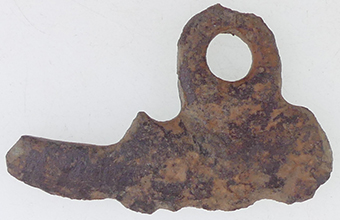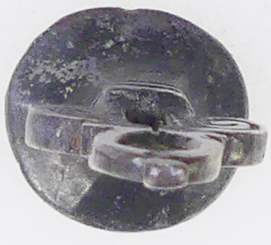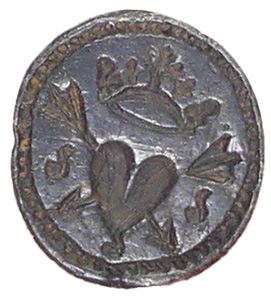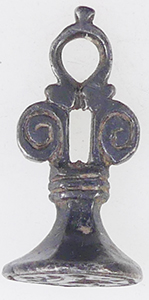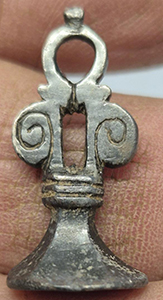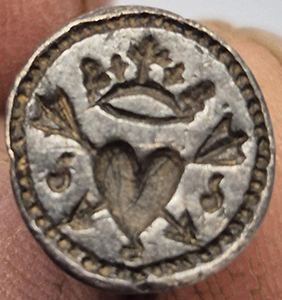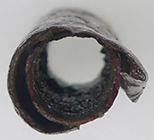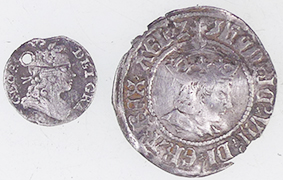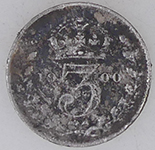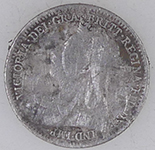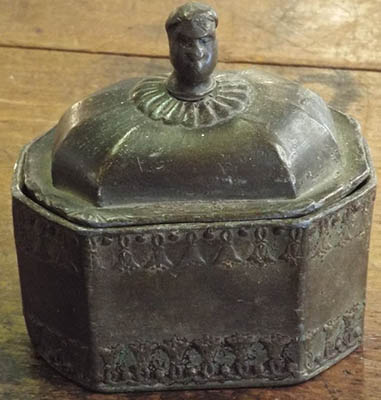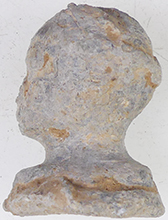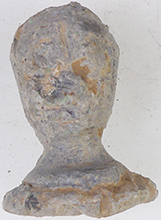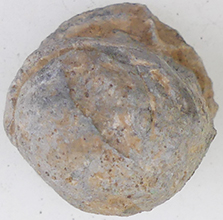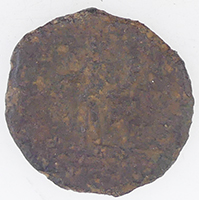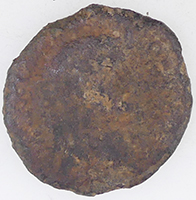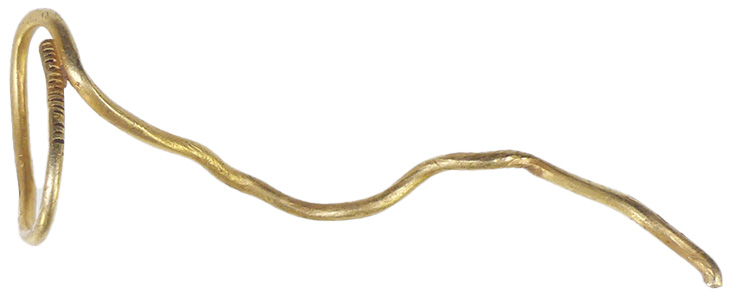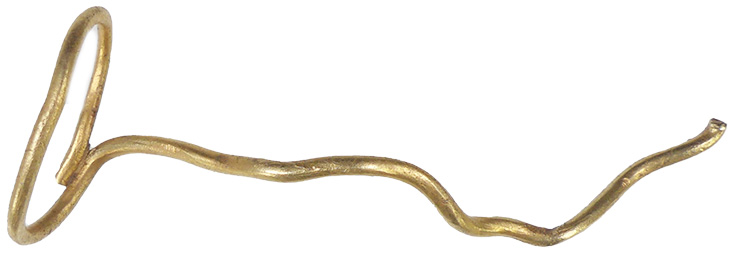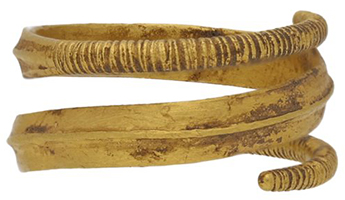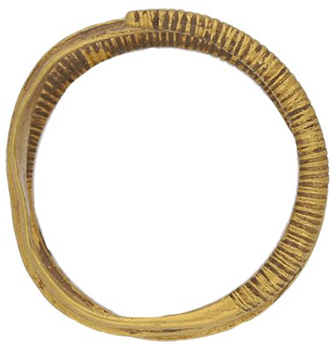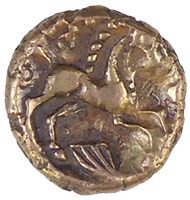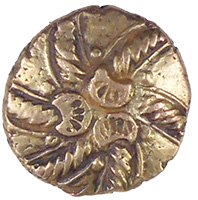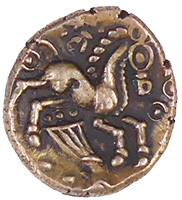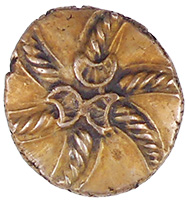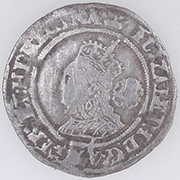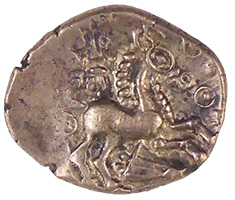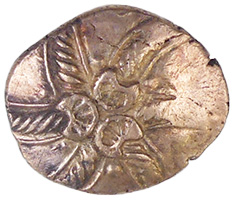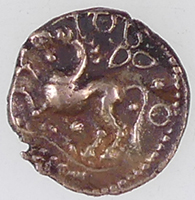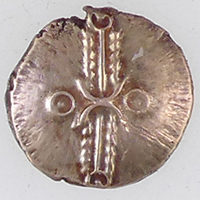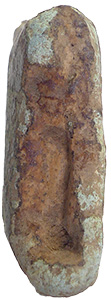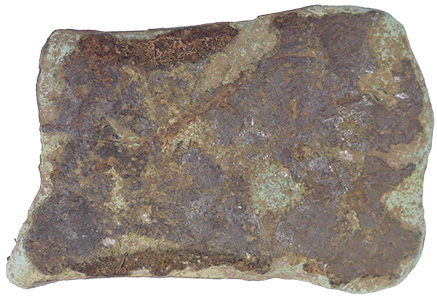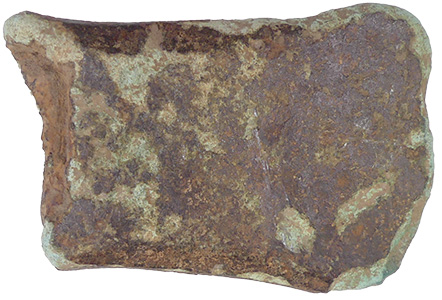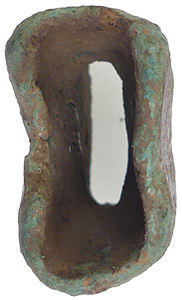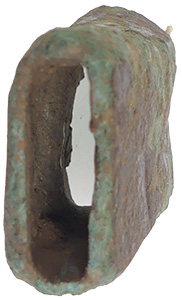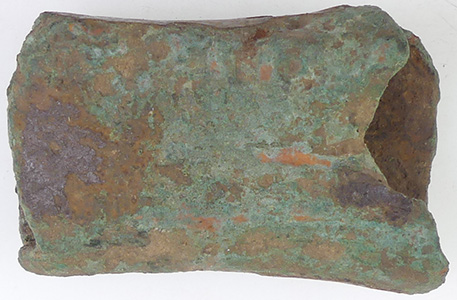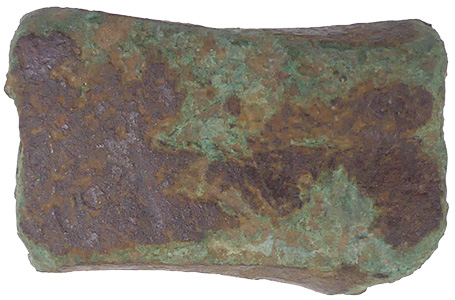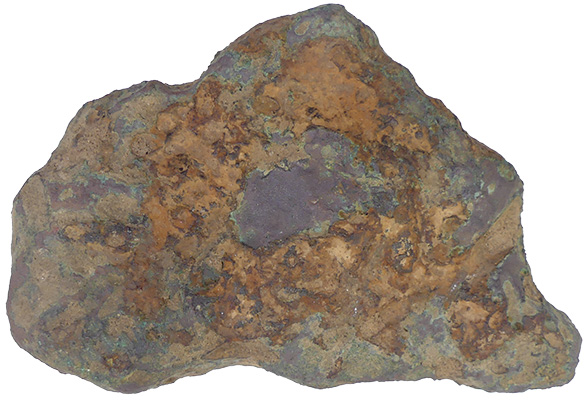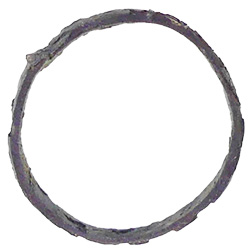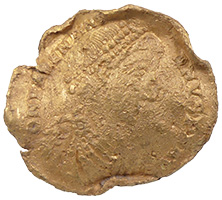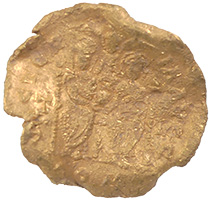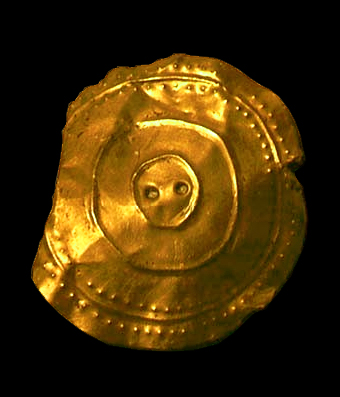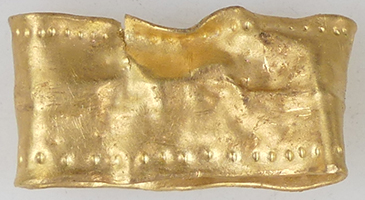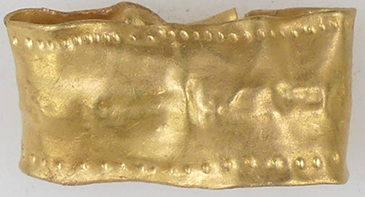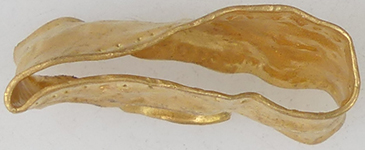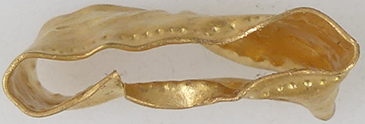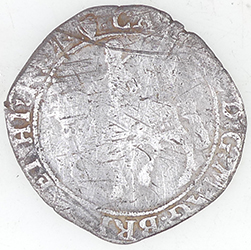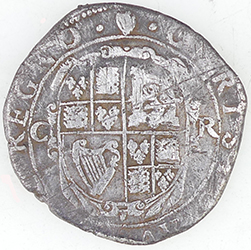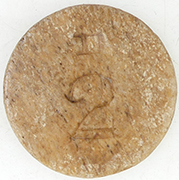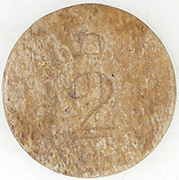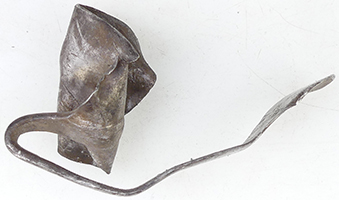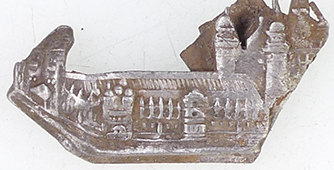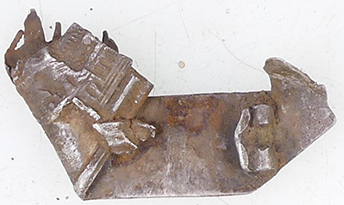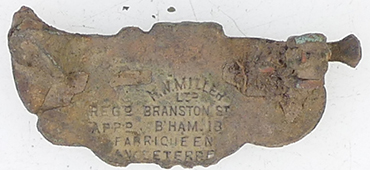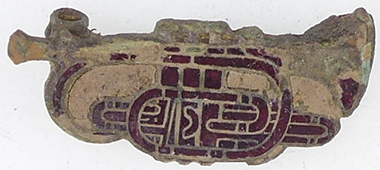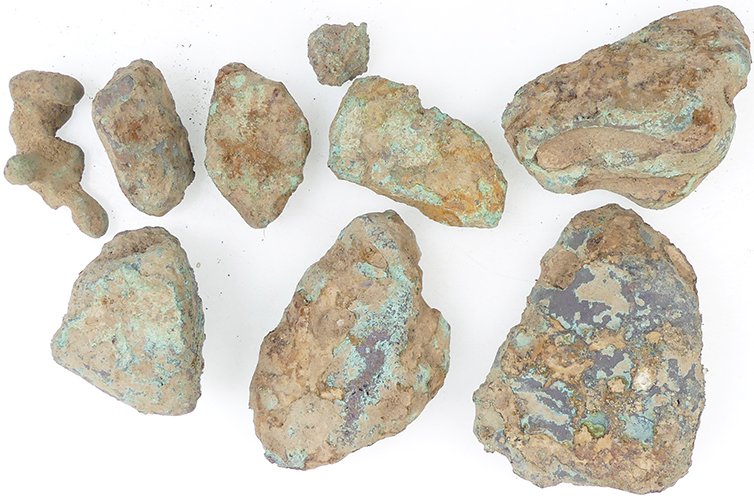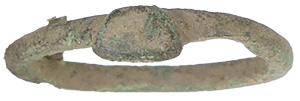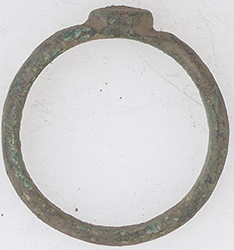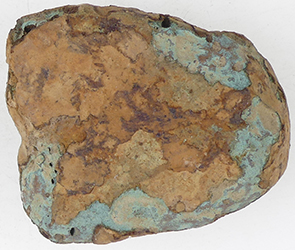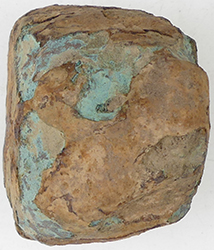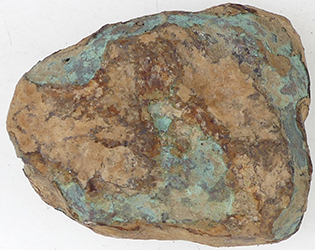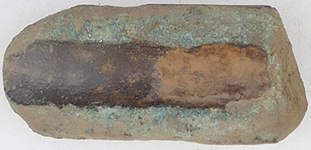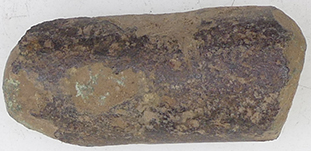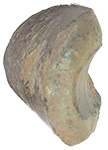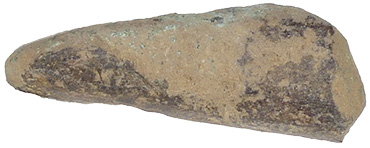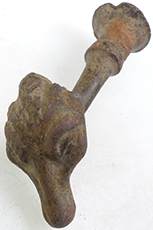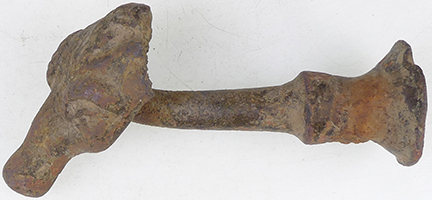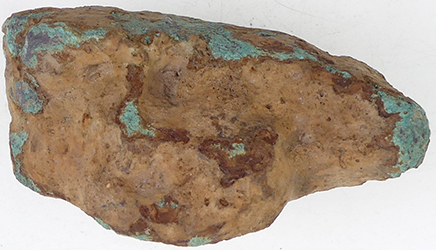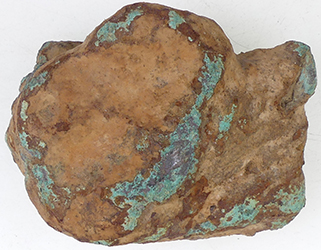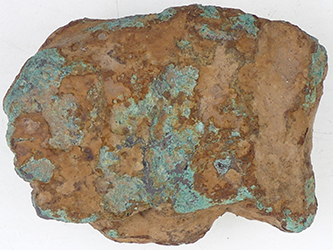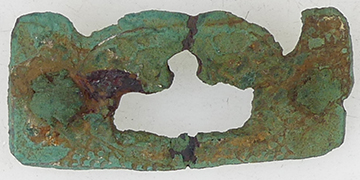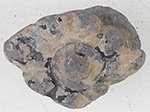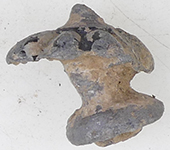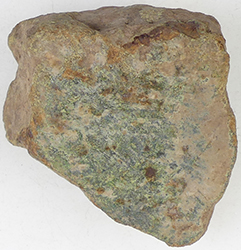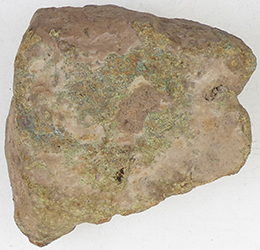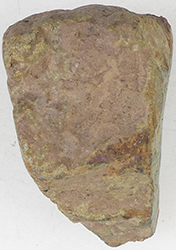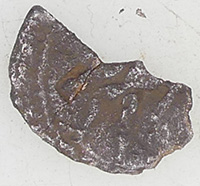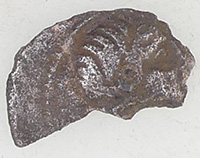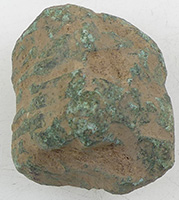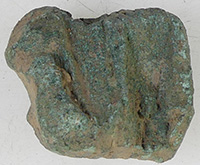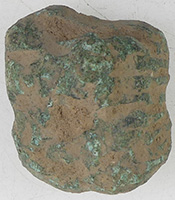

Metal detecting holidays in England with the World's most successful metal detecting club.20 years plus.
Twinned with Midwest Historical Research Society USA.
2025 Oct finds page
|
2nd - 1300 BC gold Torc - reported as treasure to museum 27.8g, 82.3 L mm x 7.7 mm dia
|
|||||||||
Gold Luckenbooth brooch reported as treasure to museum 0.91g, 20mm H x 16mm W |
|||||||||
  |
  |
||||||||
1247 Henry III hammered silver voided long cross penny Obv hENRICVS REX III Moneyer Nicole of Canterbury mint |
19thC Victoria milled silver three pence | ||||||||
  |
  |
||||||||
| 1736 Dutch Zeelandia copper duit | 1837 William IV milled silver four pence | ||||||||
  |
  |
||||||||
| 1816 George III milled silver shilling | 1723 George 1st milled silver sixpence - love token | ||||||||
 |
 |
 |
 |
||||||
| Capt / Commander - 1774-1787 RN Master & Mate - 1787-1807 |
Royal Navy Lieutenant - 1748 RN Flag Officer - 1748 |
Georgian silver cuff link | 1500-1700 mount | ||||||
  |
 |
 |
|||||||
| 1625 Charles 1st hammered silver half groat | 18thC crotal bell | 18thC crotal bell | |||||||
  |
 |
 |
|||||||
| Post medieval Corporation shield mount | Victorian Eastern Railway and Steam ship company button | RN Capt / Commander - 1787 RN Lieutenant - 1787 |
|||||||
  |
 |
 |
|||||||
British museum London SW - silver item tag J56545 No results from searching BM website |
16thC Tudor fretwork button | 19thC livery button | |||||||
  |
 |
 |
|||||||
| Victorian silver anchor brooch | Georgian spur | Georgian button | |||||||
  |
 |
 |
|||||||
| 1580 Elizabeth 1st hammered silver sixpence | George Crown badge | Medieval spur rowel made into a mount with two tangs | |||||||
c50BC Celtic gold qtr stater 1.38g, 11.56mm
Latest views from the experts from previous coin we found |
|||||||||
  |
 |
 |
|||||||
1247 Henry III hammered silver penny Obv hENRICVS REX Rev ROB/ERT/ONL/VND - Moneyer Robert of London mint |
1709 ,Royal Instituted button | 19thC livery button | |||||||
 |
 |
 |
|||||||
| 1902-1923 WWI Royal Marines Light infantry button - Kings crown | 18thC Royal Artillery button | 18thC Royal Navy silver button | |||||||
  |
 |
 |
|||||||
| 1816 George III milled silver sixpence | Georgian button | 19thC livery button | |||||||
  |
 |
 |
|||||||
1195 - 1230 William 1 The Lion of Scotland hammered silver penny - Short cross and stars issue Obv WILE**** Rev ADAM ON RORE - Moneyer Adam of Roxburgh mint |
Medieval clothing fastener | 1500-1700 buckle | |||||||
  |
  |
||||||||
| 1216 Henry III hammered silver short cross half penny | Mid 4thC House of Constantine Roman bronze - two soldiers standing | ||||||||
  |
  |
||||||||
| 1279 Edward 1st hammered silver half penny | 1988 USA one dime | ||||||||
Medieval silver utensil - reported as treausre to museum |
|||||||||
  |
  |
||||||||
15thC Venetian soldino hammered silver coin Obverse description: Doge kneeling left holding banner. Often mint control marks to right (a star/letters). BR in right field |
1573-78 Elizabeth 1st hammered silver penny - Marlet mint mark | ||||||||
  |
 |
 |
|||||||
| Scotland Alexander 1249-1286 hammered silver penny | Medieval mount | 18thC Royal Artillery button | |||||||
  |
 |
 |
|||||||
1279 Edward 1st class hammered silver penny 9b Rev VILL/SCIR/DMV/NDI -Bury St Edmunds mint |
19thC livery button | 1920's Girl Guides badge | |||||||
 |
 |
 |
 |
||||||
18thC crotal bell |
Unknown miltitary button | Shipping line button | Victorian Globe badge |
||||||
|
 |
 |
|||||||
| Small WW1 WW2 Sweetheart Brooch RNR button on Gold Bar
Crown Anchor RNR Kings crown |
Victorian Sweetheart Brooch RNR button on Gold Bar Crown Anchor RNR Queens crown |
Lead toy soldier | |||||||
  |
 |
 |
|||||||
Stunning condition (1422-1427) Henry VI Annulet issue hammered silver half groat Calais Mint Calais mint - Annulet issue - annulets by neck and between two sets of opposing pellets Standard F type JJ North 1429 Obv hENRIC DI GRA REX ANGL Z FR' Rev inner VILLA CASTISIE - Calais mint
|
1500-1700 mount | 18thC crotal bell | |||||||
1351-1352 Edward III hammered gold noble fragment Obv EDWARD DEI GRA REX ANGL Z FRANC D hYB
|
|||||||||
  |
  |
||||||||
| 1836 William IV milled silver four pence | 1613-15 James 1st hammered silver half penny | ||||||||
  |
 |
 |
|||||||
1279 Edward 1st hammered silver penny Rev CIVI/TAS/CAN/TOR - Canterbury mint |
1500-1700 mount | 19thC livery button | |||||||
 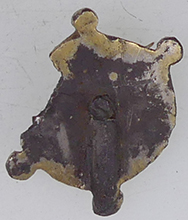 |
|
||||||||
| Tudor gilded silver clothing fastener - reported as treasure to museum | Victoria gold watch winder | ||||||||
  |
 |
 |
|||||||
| Medieval buckle and plate | 1500-1700 mount | 17thC lead token | |||||||
  |
 |
 |
|||||||
| Post medieval knife pommel | 17thC lead token | Medieval mount | |||||||
  |
 |
 |
|||||||
| 1897 Victoria milled silver shilling | Georgian trade weight | Waterford Militia Between 1793 and 1815 the 33rd Light Infantry Regiment assembled in Waterford for a month’s training each year with the reservists being paid over this period. The concept was simple if there was a landing by a foreign force these men could be called upon to defend the country. Following the defeat of France in the Napoleonic wars this threat diminished and the militia was disbanded.
Officer - 1848-1853 |
|||||||
  |
 |
||||||||
| Post medieval lead Russian bale seal | Large 18thC toy cannon | ||||||||
 |
 |
 |
|||||||
| Georgian watch winders | 18thC crotal bell | 1500-1700 mount | |||||||
  |
 |
 |
|||||||
| 16thC Elizabeth 1st hammered silver sixpence | 1500-1700 mount | 80th Regiment of foot button Description: 80 under Staffs knot under crown within wreath. Category: Regular Army; Type of button: Convex 18mm ; Metal: Copper Alloy gilt; Backmark: C JENNENS LONDON Date: 1820-1830 |
|||||||
 |
 |
 |
|||||||
Victorian button of Royal Humane Society The Royal Humane Society awards medals, testimonials and certificates for acts of bravery in the saving of human life and for effecting successful resuscitations. |
RN Capt / Commander - 1787 RN Lieutenant - 1787 |
17thC lead token | |||||||
  |
 |
 |
|||||||
| 1884 Victoria milled silver sixpence | Georgian trade weight | Victorian Eastern Railway and Steam ship company button | |||||||
  |
|
||||||||
| 1836 William IV milled silver four pence | Medieval purse bar | ||||||||
  |
  |
||||||||
| 1697 William III milled silver sixpence | 1697 William III milled silver shilling | ||||||||
  |
  |
||||||||
1883 Hawaii Kingdom Kalākaua I Historical silver Token The "1883 Hawaii Kingdom Kalākaua I Historical silver Token" refers to a series of Kalākaua coinage, specifically silver coins (like dollars, half dollars, quarters, and dimes) issued in 1883 under King David Kalākaua I of the Hawaiian Kingdom to promote national pride. These coins feature a portrait of the King on the obverse and the Hawaiian coat of arms on the reverse, were struck at the U.S. Mint in San Francisco, and financed by Claus Spreckels |
1915 George V milled silver shilling | ||||||||
  |
  |
||||||||
| 19thC Victoria milled silver three pence | 1915 George V milled silver shilling | ||||||||
 |
 |
 |
|||||||
| Georgian spur | Post medieval mount | Shipping line button | |||||||
  |
  |
||||||||
Victorian ALLISON & Co- Trade token |
Victorian Thompson advertising token Tea, Coffee and Spices sold genuine as imported An Oz of the best mixed tea London |
||||||||
  |
 |
 |
|||||||
1821 Royal mint weight - half gold sovereign - penny weights and grains Lion stg, left on crown 2.13 |
1820 USA Navy button | Medieval gilded mount | |||||||
 |
  |
||||||||
| 16thC Tudor seal spoon handle | 1816 George III milled silver shilling | ||||||||
  |
  |
||||||||
| 1834 William IV milled silver six pence | 1279 Edward 1st hammered silver penny Obv + EDWAR ANGL DNS hYB Rev CIVI/TAS/CAN/TOR - Canterbury mint
|
||||||||
  |
 |
 |
|||||||
| 1591 - 1595 Elizabeth 1st hammered silver half groat - tun mint mark | Georgian button | Medieval lead token | |||||||
  |
 |
 |
|||||||
| Medieval lead token | 19th C livery button | 19th C livery button | |||||||
  |
  |
||||||||
| 1788 Dutch Zealandia duit copper coin | 1816 George III milled silver sixpence | ||||||||
  |
  |
||||||||
| 1625 Charles 1st hammered silver penny | Irish 1272 Edward 1st hammered silver penny Obv EDW *** Rev CIVI/TAS/DVBL/INIE - Dublin mint |
||||||||
 |
 |
 |
 |
||||||
| 15thC lead token | Police 'Essex Constabulary' button | Victorian post office button | RN Master button
RN Master - 1807-1825
|
||||||
|
 |
 |
|||||||
1817 silver spoon - London mint, George III duty paid bust - b date letter Maker William Eley I & William Fearn (registered Jan 1797 & Oct 1814) |
16thC Tudor button | 18thC Royal Artillery button | |||||||
  |
 |
 |
|||||||
| 1696 William III milled silver shilling | WWI Essex Regiment cap badge | 19thC riding button | |||||||
 |
 |
 |
|||||||
| Georgian Jews harp | Capt / Commander - 1774-1787 RN Master & Mate - 1787-1807 RN Surgeon - 1787-1805 RN Purser - 1787-1807 |
Georgian cuff link | |||||||
 |
  |
||||||||
16thC Tudor clothing fastener with religious inscription
IHS: dating from the 8th c., this is an abbreviation for "IHESUS," the way Christ's Name was spelled in the Middle Ages (despite popular belief, the monogram stands neither for "Iesus Hominum Salvator" --"Jesus Saviour of Men" -- nor for "In His Service.") Popularized by St. Bernardine of Siena, the monogram was later used by St. Ignatius of Loyola as a symbol for the Jesuit Order. The IHS monogram is an abbreviation or shortening of Jesus' name in Greek to the first three letters. Thus ΙΗΣΟΥΣ, ιησυς (iēsus, "Jesus"), is shortened to ΙΗΣ (iota-eta-sigma), sometimes transliterated into Latin or English characters as IHS or ΙΗC. The symbol is said to appear rarely in the catacombs, only in the catacomb of Priscilla and the atrium of the Capella Gr�ca (Greek Chapel).1 It was popularized in the fifteenth century, however, by Franciscan disciple Bernadine of Sienna as a symbol of peace. In 1541 St. Ignatius Loyola adopted the symbol with three nails below and surrounded by the sun as the seal of the Jesuit order. Contrary to some authors, the monogram originally stood for neither for Iesus Hominum Salvator ("Jesus Savior of Men") nor for "In His Service." Some attribute its origin to Constantine's vision, where he saw a cross with the inscription "In hoc signo vinces" ("in this sign you shall conquer,"2 which is abbreviated, according to them, as IHS. However, this seems to require a stretch, as do claims that it is really a pagan symbol. The simplest explanation, as an abbreviation of Jesus' name, is best. |
1817 George III milled silver shilling | ||||||||
  |
  |
||||||||
| 1797 Carlos IV Spanish milled silver coin | 1854 Victoria milled silver three pence | ||||||||
  |
  |
||||||||
| 1868 Victoria milled silver six pence | Too cracked to clean - could be a 1158 -1189 AD Henry II hammered silver penny ' Tealby' cross and crosslet type |
||||||||
  |
  |
||||||||
| 1666 Tomas Peeke of Colchester hammered copper trade farthing | 1646-8 Charles 1st hammered silver half groat - Sceptre mint mark | ||||||||
  |
 |
 |
|||||||
| 1817 George III milled silver shilling | 1500-1700 mount | Medieval mount | |||||||
 |
  |
||||||||
Description: XI with REGIMENT in garter on crowned eight pointed star. Category: Regular Army; Type of button: Slight convex 22mm ; Metal: Copper Alloy; Backmark: I NUTTING & SON KING STREET COVENT GARDEN; Date: c1803-1820 |
1794 Hungary Franz 1- miller silver 3 kouzer Ruler:Emperor Francis II (Franz I) |
||||||||
  |
 |
 |
|||||||
| 1917 George V milled silver three pence | 1500-1700 mount | Victorian pendant | |||||||
  |
 |
 |
|||||||
| 1575 Elizabeth 1st hammered silver penny | Victoria silver charm | Georgian trade weight | |||||||
 |
 |
 |
|||||||
| Georgian watch winders | 18thC crotal bell | ||||||||
  |
 |
 |
|||||||
| 1591 - 1595 Elizabeth 1st hammered silver half groat - tun mint mark | 19thC livery button | 19thC livery button | |||||||
 |
|||||||||
| Very round and smooth post medieval lead spindle whorl | |||||||||
70BC Morini 'boat tree' Celtic gold qtr stater - reported to museum 1.42g, 10.21mm |
|||||||||
Tiny 1300 BC gold ring - reported as treasure 0.36g, 6.7mm dia |
|||||||||
1803 Gold ring - London date letter H -duty paid bust of George 1.0g, 22.3 mm L Maker SG - Could be Saml. & |
|||||||||
  |
  |
||||||||
| 1909 German milled silver half mark | 1279 Edward 1st hammered silver penny | ||||||||
  |
  |
||||||||
| 1818 George III milled silver shilling | 1838 Victoria milled silver four pence | ||||||||
|
 |
 |
|||||||
| Roman strap end | 15thC lead token | 15thC lead token | |||||||
  |
 |
 |
|||||||
| Saxon zoomorphic strap end | 19thC livery button | RN Capt / Commander - 1787 RN Lieutenant - 1787 |
|||||||
  |
 |
 |
|||||||
| 19thC apothecary weight | 1890 General service cuff button | 19thC livery button | |||||||
 |
 |
 |
|||||||
One piece Navy button HONI SOIT QUI MAN Y PENSE PACKET Honi soit qui mal y pense (Old French: shame upon him who thinks evil of it) RN - Packet Service c.1800-1811 |
19thC livery button | Corporation button | |||||||
|
 |
 |
|||||||
| Small WW1 WW2 Sweetheart Brooch RNR button on Gold Bar
Crown Anchor RNR Kings crown |
Edwardian jewelry link | 19thC military button GR |
|||||||
  |
 |
 |
|||||||
| 1849 Victoria milled silver shilling | Victorian brooch | 17thC Charles 1st silver button - reported as treasure | |||||||
  |
  |
||||||||
| India 1904 Edward VII milled silver 1 rupee | 1917 George V milled silver shilling | ||||||||
  |
 |
 |
|||||||
1422-61 Henry VI hammered silver half penny - trefoil by neck Obv **REX A + Rev EBO- York mint |
Georgian lead tobacco jar lid handle | WWII Essex Regiment cap badge | |||||||
  |
 |
 |
|||||||
| 19thC lead printing press block | Victorian Great Eastern Railway button | RN Capt / Commander - 1787 RN Lieutenant - 1787 |
|||||||
|
  |
||||||||
| Medieval pin | 1619-25 Gold coin weight Half laurel of James I, 3rd Coinage 5.0 gm - Crown XS | ||||||||
  |
 |
 |
|||||||
| Medieval prick spur | 18thC clog fastener | 1500-1700 mount | |||||||
  |
  |
||||||||
| 1603 James 1st lead coin weight | 1578-9 Elizabeth 1st hammered silver penny - Greek cross mint mark | ||||||||
 |
 |
 |
|||||||
| Georgian buckle | Post medieval lead trade weight | 18thC lead sewing egg | |||||||
  |
  |
||||||||
| 1865 Victoria milled silver sixpence | 1634 Charles 1st hammered copper rose farthing | ||||||||
Unknown mount with gold rivet Enameled Roman figures |
|||||||||
  |
  |
||||||||
| Medieval gold noble coin weight | 15thC thimble | ||||||||
 |
 |
 |
|||||||
Honi soit qui mal y pense (Old French: shame upon him who thinks evil of it) THE ARMY SERVICE CORPS (1914 -1918) |
Georgian spur buckle | 19thC hunting button | |||||||
  |
  |
||||||||
| Great Britain John Wilkinson Iron Master Copper Half Penny Token1788 | Taco'd - 1327 Edward III hammered silver groat London mint |
||||||||
  |
  |
||||||||
| 1910 Edward VII milled silver sixpence | 1422-61 Henry VI hammered silver half penny- Leaf issue -plain cross Obv + hENRICVS *** LI Rev CALI/SIE- Calais mint |
||||||||
 |
 |
 |
|||||||
| 1625 Charles 1st hammered silver half groat - love token | 18thC crotal bell | 1500-1700 mount | |||||||
 |
 |
 |
 |
||||||
| 1500-1700 mount | 19thC livery button | 1770's George III gold half guinea coin weight 2 pennyweight and 16 grains
|
15thC lead token | ||||||
 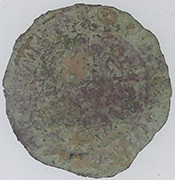 |
 |
 |
|||||||
| 1580's German rose orb jetton | Victorian Corporation button | 19thC hunting button | |||||||
  |
|||||||||
| Roman bronze lion mount | |||||||||
  |
 |
||||||||
| 1696 William III milled silver sixpence | 1640's Civil War iron cannon ball 42.4mm, 1.6 ich dia - 10oz |
||||||||
Heart attack finds - Modern French 1999 gold Euro coins that look like you popped a gold coin !! |
|||||||||
  |
 |
 |
|||||||
1247 Henry III voided long cross penny Rev WILLEM - Moneyer Willem |
O/R's - 1855-1881 c 1881 - THE 41st REGIMENT OF FOOT. / AFTER 1881 :- 1st Battalion The Welsh Regiment |
16thC Tudor snake buckle | |||||||
  |
 |
 |
|||||||
| 1216 Henry III hammered silver short cross farthing | 17thC buckle | 1500-1700 mount | |||||||
  |
  |
||||||||
| 19thC Victoria milled silver three pence | BC Roman silver coin - needs 'cooking' to remove horn crust | ||||||||
  |
  |
||||||||
| 17thC hammered copper trade farthing | 18thC silver clog fastener - Maker GB - George III duty paid bust mark | ||||||||
 |
 |
 |
|||||||
| Georgian watch winders | 18thC silver fastener | 18thC Lead figurine | |||||||
  |
 |
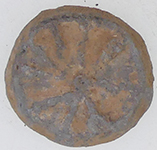 |
|||||||
| 1575 Elizabeth 1st hammered silver three pence | 16thC Tudor button | Medieval lead weight | |||||||
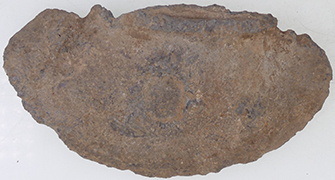 |
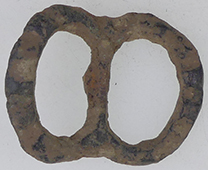 |
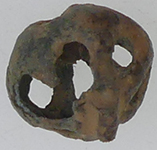 |
|||||||
| 18thC lead sewing palm guard | 1500-1700 buckle | 16thC Tudor button | |||||||
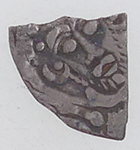 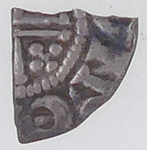 |
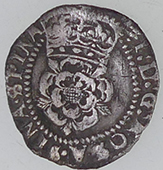 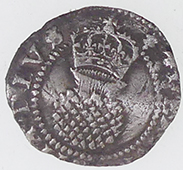 |
||||||||
| 1216 Henry III hammered silver short cross farthing | 1613 James 1st hammered silver half groat | ||||||||
17thC silver bodkin needle - reported as treasure |
|||||||||
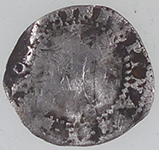 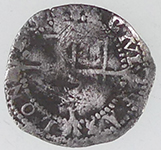 |
 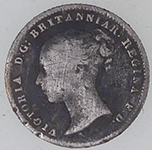 |
||||||||
| 16thC Elizabeth 1st hammered silver penny | 1839 Victoria milled silver four pence | ||||||||
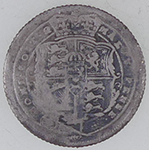 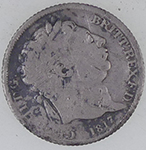 |
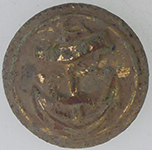 |
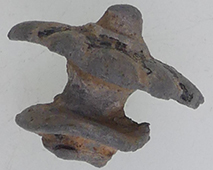 |
|||||||
| 1817 George III milled silver sixpence | 1900's Generic merchant navy button | Georgian lead tobacco jar lid handle | |||||||
Interesting Roman period hanger |
|||||||||
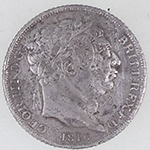 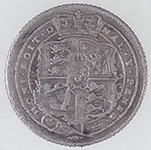 |
 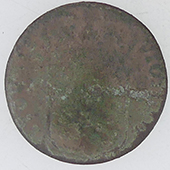 |
||||||||
| 1816 George III milled silver sixpence | 1768 Dutch Overyssel duit copper coin | ||||||||
 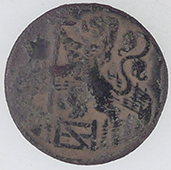 |
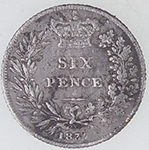 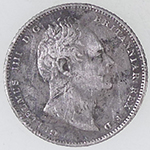 |
||||||||
| 1758 Dutch Holandia duit copper coin | 1837 William IV milled silver sixpence | ||||||||
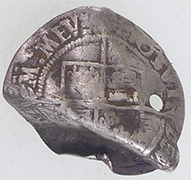 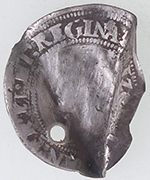 |
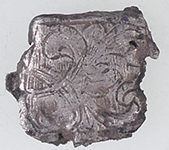 |
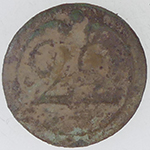 |
|||||||
| 16thC Elizabeth 1st hammered silver sixpence | 18thC silver cloth fastener | French Infantry Button 22nd Line Regiment Circa 1803-1814 |
|||||||
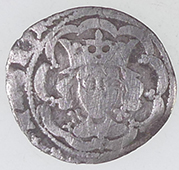 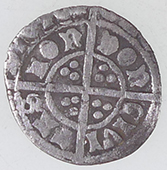 |
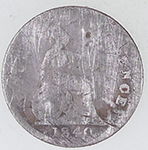 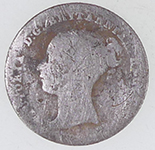 |
||||||||
1461-1464 Edward IV hammered silver half groat - Heavy issue Quadtrefoils by neck 9 arches to tressure, fleur on cusps none over crown Rev CIVI/TAS/LON/DON - London mint |
1840 Elizabeth 1st hammered silver four pence | ||||||||
 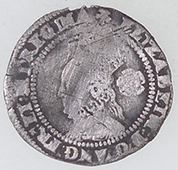 |
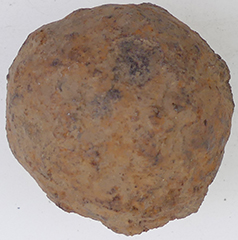 |
||||||||
| 1574 Elizabeth 1st hammered silver three pence | 1640's Civil War iron cannon ball 30 mm, 1.2 inch dia -3.5 oz |
||||||||
Beauty 17thC silver seal matrix - Charles II marriage symbol - reported as treasure to museum |
|||||||||
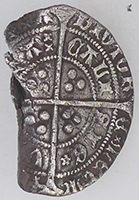 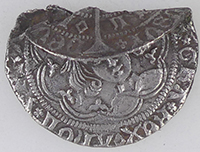 |
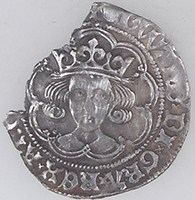 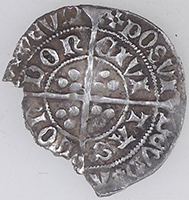 |
||||||||
1427-30 Henry VI hammered silver groat Rosette Mascle issue Obv +hENRIC DI GRA*REX ANGL*Z FRANC Rev VIL/LAxx/CAL/SIE * - Calais mint |
1369- 1377 Edward III hammered silver groat - Closed C & E, St Andrews cross - Post Treaty Obv + EDWARDx DIx GRAx REXx AN**** Rev CIVI/TAS/LON/DON- London mint |
||||||||
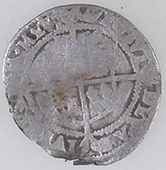 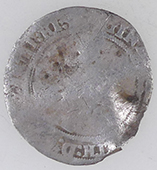 |
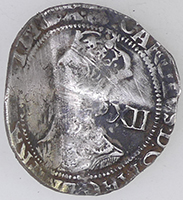 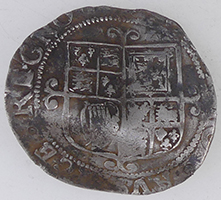 |
||||||||
| 1567 - 1570 Elizabeth 1st hammered silver three pence- Coronet mint make | 1625 Charles 1st hammered silver shilling (12 pence) | ||||||||
 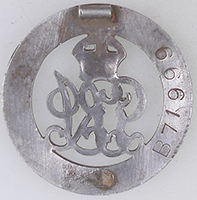 |
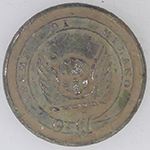 |
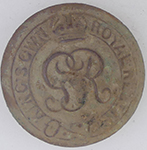 |
|||||||
WW1 Silver Wound Badge For King and Empire Services Rendered Replacement Badge For King and Empire Services rendered The solution was the retrospective award of a special badge, made from sterling silver, to indicate that the wearer had once honourably served his King and Country but was no longer fit enough to do so. It was called the Silver War Badge and bears the inscriptions 'For King and Empire' and 'Services Rendered'. |
19thC livery button | George V - The King’s Own Royal Regiment – Norfolk Yeomanry | |||||||
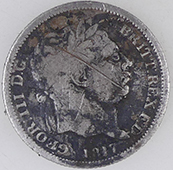 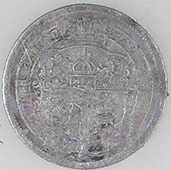 |
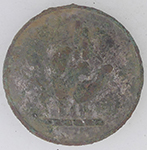 |
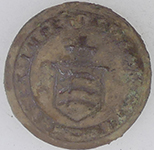 |
|||||||
| 1817 George III milled silver shilling | 19thC livery button | Essex corporation button | |||||||
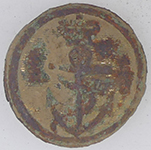 |
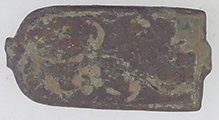 |
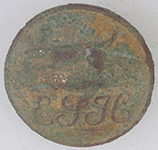 |
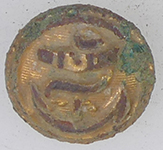 |
||||||
| RN Capt / Commander - 1787 RN Lieutenant - 1787 |
18thC clog fastener | 19thC livery button | 1900's Merchant navy button | ||||||
 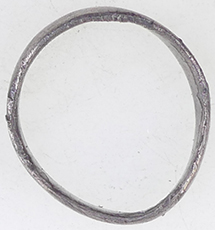 |
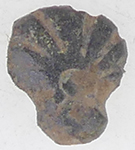 |
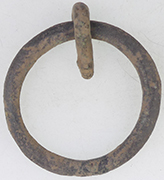 |
|||||||
| Silver ring - no hall marks | Medieval mount | ||||||||
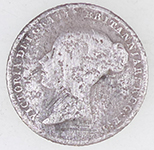 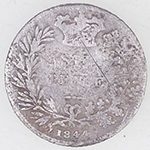 |
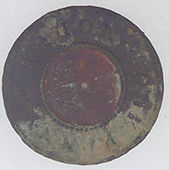  |
||||||||
| 1844 Victoria milled silver sixpence | 1844 Victorian Model penny
Joseph Moore was a noted Birmingham medallist (1817 - 1892) who trained under Halliday. He was then in partnership as Allen & Moore (1840 - 1858) and the A&M initials are on many pieces of this period. From 1859 onwards he was trading in his own name with the Moore business eventually being acquired by Fattorini & Sons in 1920. In 1844 Moore produced models (patterns) of a bimetallic penny as a suggestion for a change in the currency of the realm by using lighter and smaller coins than the much heavier and larger "cartwheels" then still in general use. Later, in 1847 / 1848 Moore's firm produced a range of model pieces ranging from 1/16th of a farthing (6mm diameter) through to the bimetallic half pennies and pennies and up to the very ornate crowns, also bimetallic, and quarter sovereigns. The lower denominations were very small and not actual currency in force in the UK either at that time, or before or since. The smaller pieces were probably produced to enhance his own expertise and to market the larger pieces and they have readily become collectable today as "Model Coins". The bimetallic pennies - still seen in abundance today - were so popular with the general public that the Royal Mint had to make an official announcement that they were not legal tender. Moore meant them to be serious models for consideration as currency and most have "Model" on them which probably saved Moore from prosecution under the Counterfeit Laws. |
||||||||
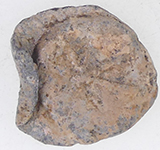 |
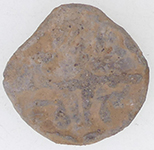 |
 |
 |
||||||
| 15thC lead token | 15thC lead token | 1500-1700 mount | WWI Royal Engineers badge | ||||||
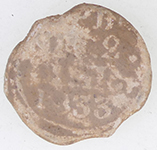 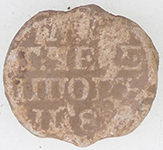 |
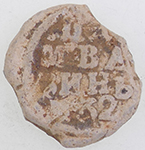 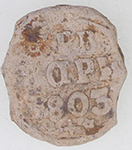 |
||||||||
| 1833 Russian lead bale seal | 1803 Russian lead bale seal | ||||||||
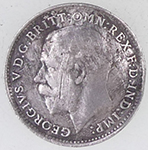  |
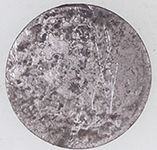 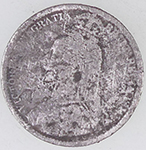 |
||||||||
| 1919 George V milled silver three pence | 19thC Victoria milled silver sixpence | ||||||||
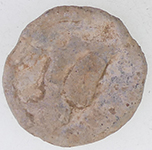 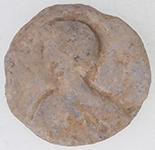 |
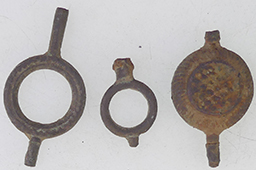  |
||||||||
| 16thC Elizabeth 1st illegal tavern lead token | Georgian watch winders | ||||||||
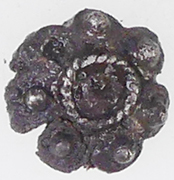 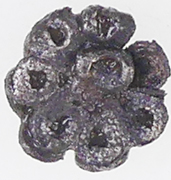 |
 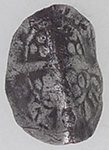 |
||||||||
| 16thC Tudor silver mount - reported as treasure | 1279 Edward 1st hammered silver farthing Obv +EDWARDVS REX Rev CIVI/TAS/LON/DON - London mint 0.35g, 11.26 mm |
||||||||
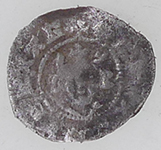 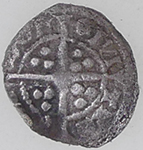 |
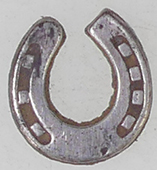 |
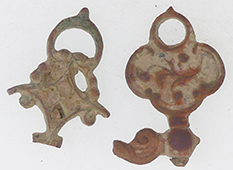 |
|||||||
1327-35 Edward III hammered silver farthing - Type 32 Obv **** REX AG Rev CIVI/TAS/**/DON - London mint 0.31g, 11.85 mm |
Modern silver horse shoe mount | Georgian watch winders | |||||||
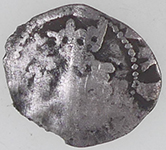 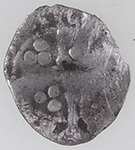 |
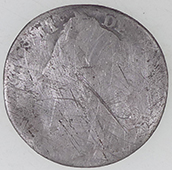 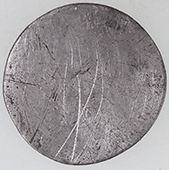 |
||||||||
1279 Edward 1st hammered silver penny Obv **WAR ** Rev Quadrefoil at centre of reverse cross - York mint |
1727-1760 George II milled silver shilling | ||||||||
|
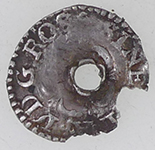 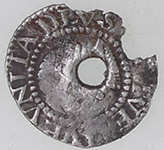 |
||||||||
| Victoria decorated silver tube - cane band | 1603 -4 James 1st hammered silver penny |
||||||||
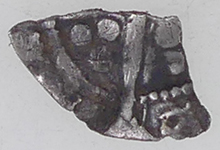 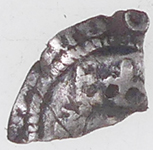 |
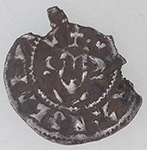 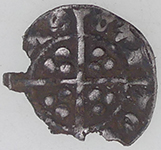 |
||||||||
| Medieval hammered silver long cross medieval halfpenny | 1279 Edward 1st hammered silver penny Rev **RANGL DNS Rev CIVI/;TAS/CAN/TOR - Canterbury mint |
||||||||
  |
 |
||||||||
| 1247 Henry III hammered silver voided long cross half penny | Victoria silver brooch | ||||||||
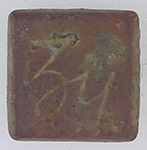 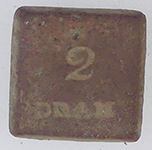 |
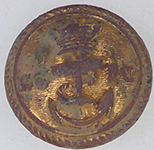 |
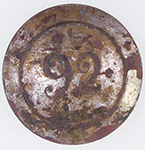 |
|||||||
| 18hC Apothecary weight - 2 Dram | 1837 -1901 Royal Thames Yacht club | The 92nd Highland Regiment was a British infantry regiment raised in 1794 by the Duchess of Gordon with a shilling between her lips. They formed the 2nd battalion of the Gordon Highlanders on its inception in 1881. Description: 92 within plain inner circle. Category: Regular Army; Type of button: Convex 15mm ; Metal: Copper Alloy silvered; Backmark: EXTRA STRONG PLATED Date: c1820-1840 |
|||||||
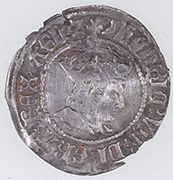 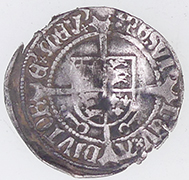 |
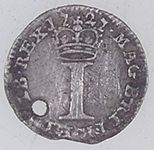 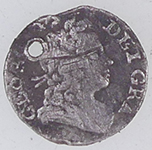 |
||||||||
1504-9 Henry VII hammered silver half groat -Martlet mint mark York, Archbishop Bainbridge - two keys under shield |
1727 George 1st milled silver penny | ||||||||
Size comparison Henry VII half groat to George penny |
|||||||||
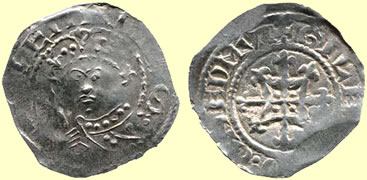 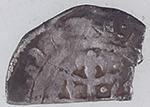 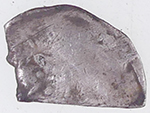 |
|||||||||
Very Rare 1100 AD Henry 1st hammered silver half penny - Quadrilateral on cross fleury type Born around 1068, very little is known of Henry’s early life: as the youngest son of William the Conqueror he had never expected to be king. Inheriting the throne from his eldest brother William II, Henry embraced his new found role in an enthusiastic manner, introducing modernising reforms and centralising the powers of the crown. He was an educated and decisive ruler, being the only brother who was literate and fluent in English he earned himself the nickname Henry Beauclere, meaning good writer. His path to becoming king and his subsequent rule however was not without its challenges, which all began with his father’s death in 1087. In his inheritance, having lost one son to a hunting accident, William the Conqueror left his patrimonial lands of Normandy to his eldest son Robert. His younger son William Rufus was destined to receive England whilst Henry was given a considerable sum of money as well as his mother’s lands in Buckinghamshire and Gloucestershire. The brothers however were far from satisfied with the arrangement and continued to war with each other throughout their entire lives. |
|||||||||
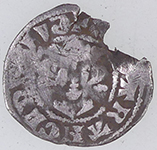 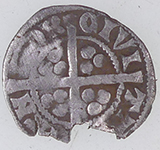 |
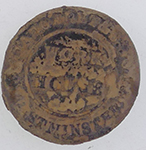 |
||||||||
1279 Edward 1st hammered silver penny Obv *AR ANGL DNS hBY Rev CIVI/;TAS/CAN/TOR - Canterbury mint |
Victorian Westminster work house button A corroded button from an inmates uniform at the St Margaret and St John, Westminster Union workhouse The parish of St James Piccadilly erected a workhouse on Poland Street in 1725 for the able-bodied poor. This was taken over by the newly-formed Westminster Union in 1868. The workhouse closed in or shortly after 1913. In 1914 the site was used for housing wartime refugees - 200 Russian Jews, mostly from Antwerp. It became the Poland Street Institute for Jews. 1925 much of the site was reconstructed as a garage, but not the western section where the plaque is found. |
||||||||
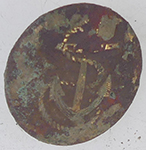 |
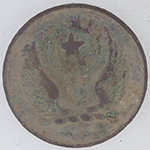 |
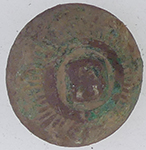 |
|||||||
| Capt / Commander - 1774-1787 RN Master & Mate - 1787-1807 RN Surgeon - 1787-1805 |
19thC livery button | ||||||||
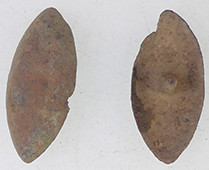 |
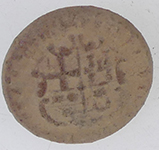 |
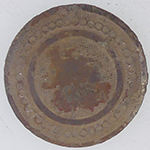 |
|||||||
| 2- 1500-1700 mounts | 20th Corporation button | Georgian button | |||||||
  |
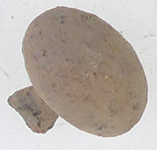 |
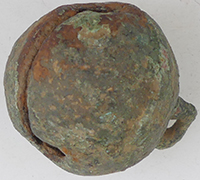 |
|||||||
Scotland Alexander 1249-1286 hammered silver penny Class 4 obv - ALEXANDER DEI GRA Rev -REX SCOTORUM - King of Scotland |
16thC Tudor button | ||||||||
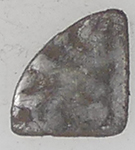 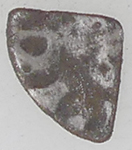 |
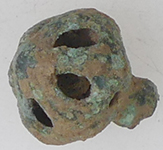 |
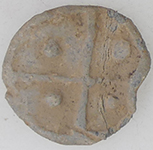 |
|||||||
| 1247 Henry III hammered silver voided longcross farthing | 16thC Tudor button | 15thC lead token | |||||||
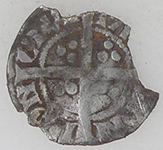 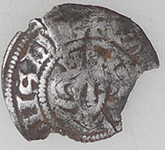 |
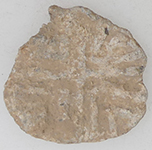 |
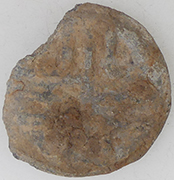 |
|||||||
1279 Edward 1st hammered silver half penny Obv +EDW ***** DNS hBY Rev CIVI/;TAS/LON/DON - London mint |
15thC lead token | 15thC lead token | |||||||
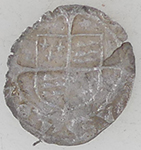 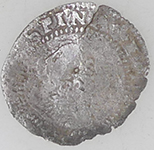 |
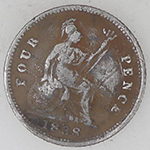 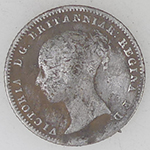 |
||||||||
| 1560-1 Elizabeth 1st hammered silver penny - Cross crosslet mint mark | 1838 Victoria milled silver four pence | ||||||||
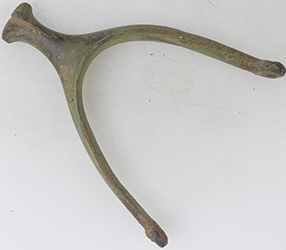 |
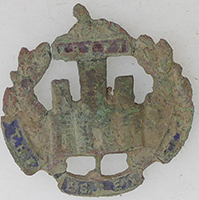 |
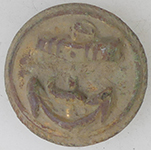 |
|||||||
| Georgian spur | WWI Essex regiment sweetheart badge | 1900's Generic merchant navy button | |||||||
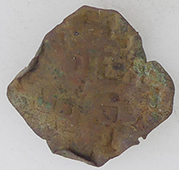 |
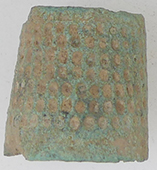 |
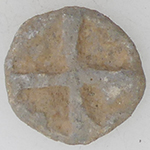 |
|||||||
| 'A badge for a Knight of the Order of the Holy Sepulchre in bronze and dating somewhere around C13/14th possibly very slightly later . This is a very scarce item and it relates to The Equestrian Order of the Holy Sepulchre of Jerusalem being a Catholic chivalric order of Knighthood that traces its roots to Godfrey of Bouillon, principal leader of the First Crusade. According to reliable sources in the Vatican and Jerusalem, it began in historical reality as a mixed clerical and lay confraternity (association) of pilgrims which gradually grew around the most central of the Christian holy places in the Middle East, the Holy Sepulchre or the tomb of Jesus Christ.This would have been a pin for a member of the order , there is a mark on the reverse where the original pin would have been fixed ' | 15thC thimble | Medieval weight | |||||||
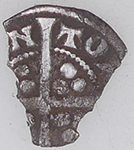 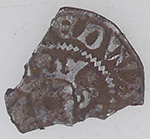 |
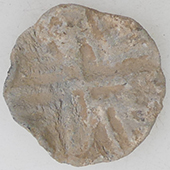 |
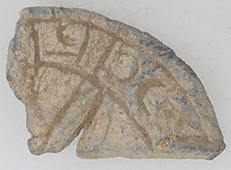 |
|||||||
1279 Edward 1st hammered silver half penny Obv +EDWA** Rev N/TOR -Canterbury mint |
15thC lead token | Medieval lead seal fragment | |||||||
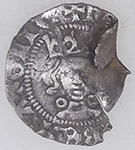 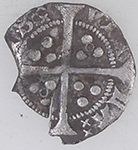 |
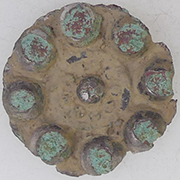 |
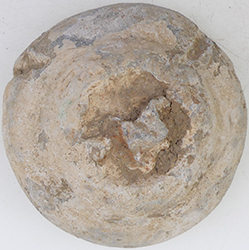 |
|||||||
1422-27 Henry VI First reign hammered silver penny Annulets by neck, annulets in centre of pellets in 2 qtrs Rev VILLA/CAL/ISIE - Calais mint |
Georgian mount | Medieval lead trade weight | |||||||
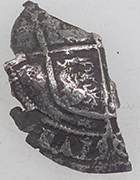 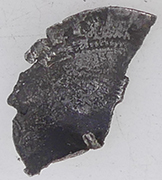 |
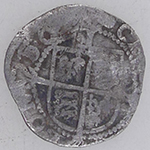 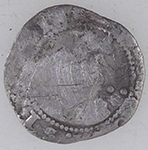 |
||||||||
| 1thC Elizabeth 1st hammered silver sixpence | 1592-8 Elizabeth 1st hammered silver penny -Tun mint mark | ||||||||
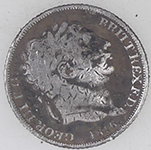 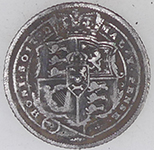 |
|
||||||||
| 1816 George III milled silver sixpence | 1900 Victoria milled silver three pence | ||||||||
Georgian lead tobacco jar lid handle |
|||||||||
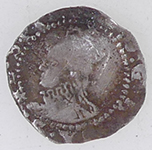 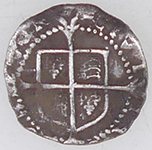 |
  |
||||||||
| 1494-6 Elizabeth 1st hammered silver penny -Woolpack mint mark | Roman pendant | ||||||||
 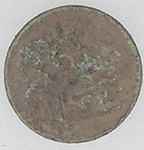 |
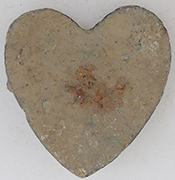 |
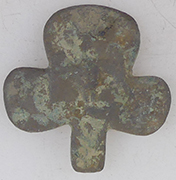 |
|||||||
| 1887 Victoria Jubilee Model Half Farthing bronze | 1500 - 1700 mount | 1500 - 1700 mount | |||||||
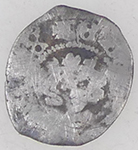 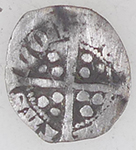 |
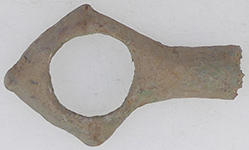 |
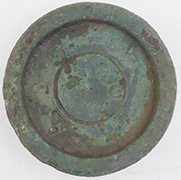 |
|||||||
1300-1310 Edward II hammered silver farthing 0.336g, 12.15mm Obv +ED**** X Rev CIVI/TAS/LON/DON - London mint
|
c10thC Saxon harness cheek piece | Georgian trade weight - Crown G cipher | |||||||
Large 1stC Roman bronze coin sent for ID 6.96g, 25.6mm |
|||||||||
The "...ON..." is about all of the legend legible on the obverse. Given where it is, the chances are good that it's part of antONinus. As I told you about an earlier coin, this is good, up to the point where you realize that it was part of a dozen or more 2nd century emperors' official names as shown on coins. This begins with Antoninus Pius (138-161) - Marcus Aurelius' official name was also Antoninus Pius as the adopted son/successor to Antoninus Pius. After him, it's a better than 50% chance that pretty much any emperor in this period included Antoninus Pius in his official name. Of course, it may be possible with some judicious, careful cleaning to find more legible letters in either obverse or reverse legends - but in the coin's present condition, I can't be sure who it is, only suggest who it might be.
Sorry to go on at such length to tell you how it is that I can't quite be certain about the attribution, but you may find some value in hearing my process.
Best
Mark
|
|||||||||
  |
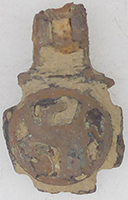 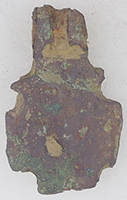 |
||||||||
| 1247 Henry III hammered silver voided long cross half penny | Medieval harness pendant | ||||||||
 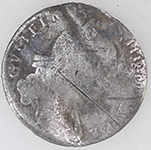 |
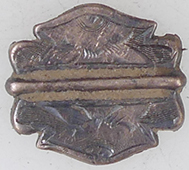 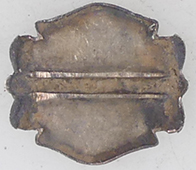 |
||||||||
| 1698 William III milled silver sixpence | Victorian rose gold mount | ||||||||
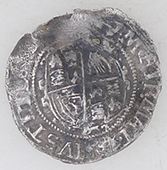 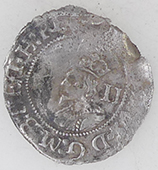 |
  |
||||||||
| 1625 Charles 1st hammered silver half groat | 1247 Henry III hammered silver voided long cross half penny | ||||||||
, 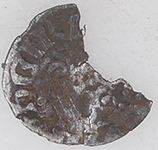 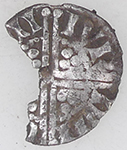 |
 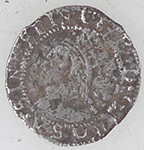 |
||||||||
1247 Henry III hammered silver voided long cross penny Rev IVR/DAN/**/**N - Moneyer Ivrdan of Winchester mint |
1572 Elizabeth 1st hammered silver penny - Ermine mint mark | ||||||||
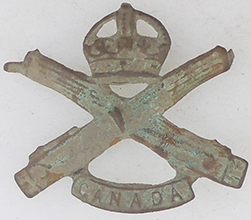 |
 |
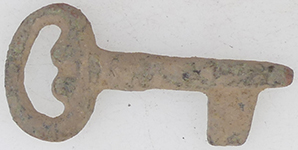 |
|||||||
| WW1 Machine Gun Corps
First World War period Canadian Expeditionary Force MGC cap badge; die stamped bronze / brass crossed vickers guns surmounted by a crown with 'CANADA' scroll below. |
Medieval mount | 15thC casket key | |||||||
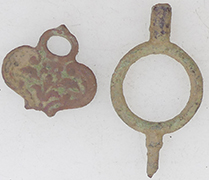 |
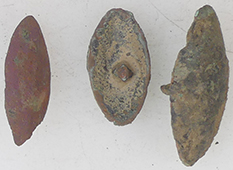 |
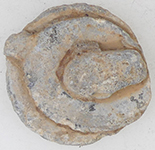 |
|||||||
| Georgian watch winders | 3 - 1500 -1700 mounts | Post medieval lead bale seal | |||||||
Ancient gold ring - reported as treasure to museum Top part of ring is soldered 5.2g, 68.2mm L
Examples of twisted wire Viking rings with cross hatching |
|||||||||
45 BC to 25BC Addedomarus Celtic gold full stater - Trinovantian tribe - reported to museum 5.48g, 15.9mm |
|||||||||
45 BC to 25BC Addedomarus Celtic gold full stater - Trinovantian tribe- reported to museum 5.48, 18.33mm |
|||||||||
1569 Elizabeth 1st hammered silver sixpence - Coronet mint mark |
|||||||||
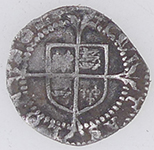 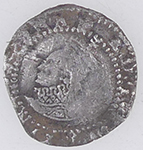 |
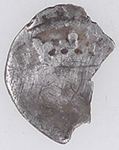 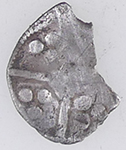 |
||||||||
| 1578-9 Elizabeth 1st hammered silver penny -Greek cross mint mark | 1485-1509 Irish Henry VII hammered silver penny Rose at centre of reverse cross |
||||||||
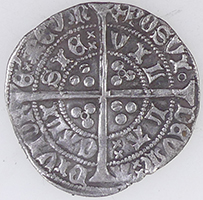 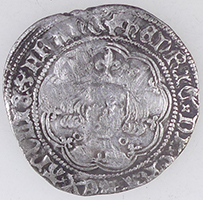 |
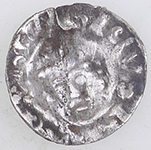 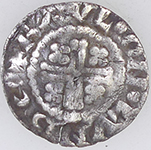 |
||||||||
1422-27 Henry VI hammered silver groat - Annulet issue - Annulets by the neck and two sets of opposing pellets on reverse obv hENRIC DI GRA REX ANGLIE Z FRANCE Rev inner VILLA CASTISIE - Calais mint Rev outer - POSVI DEVM ADIVTORE MEVM
|
1189 Henry II hammered silver short cross penny - Class 1b-2 Obv hENRICVS REX Rev ON.LVNDE +RAVL Moneyer Ravl of London mint |
||||||||
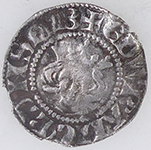 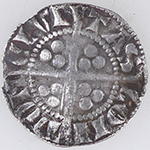 |
|
||||||||
1279 Edward 1st hammered silver penny - Cross Pattee Class 8a Obv +EDWAR' ANGL DNS hYB Rev CIVI/TAS/LON/DON - London mint |
Edwardian pin | ||||||||
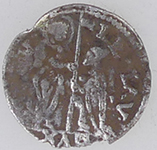 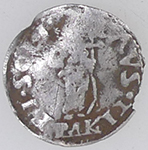 |
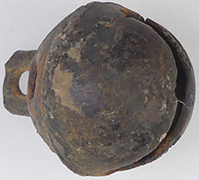 |
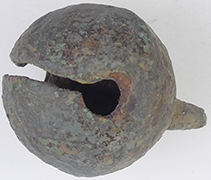 |
|||||||
1501-1521 Leonardo Lauredan, Doge Rev: LAVS TIBI SOLI (Thee Alone be Praised). Haloed figure of Christ holding a cross. Obv: LE LAV DVX S M V (Leonardo Lauredan, Doge. St Mark of Venice.) Doge kneeling before Saint Mark. |
18thC crotal bell | 18thC crotal bell | |||||||
45 BC to 25BC Addedomarus Celtic gold full stater - Trinovantian tribe- reported to museum 5.45g, 20mm |
|||||||||
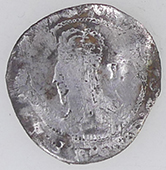 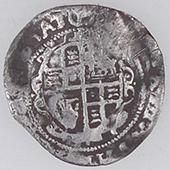 |
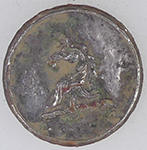 |
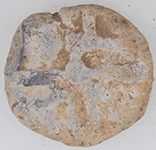 |
|||||||
| 1643-4 Charles 1st hammered silver half groat - P in circle mint mark | 19thC livery button | 15thC lead token | |||||||
Dubnovellaunos 25 BC to 5 AD CCeltic gold qtr stater- reported to museum 1.36g, 12.34mm |
|||||||||
1300 BC Bronze Age socketed axe head 55.24mm L x 32mm W x 11.42 mm T
|
|||||||||
1300 BCBronze Age socketed chisel 400mm L x 27mm W x 15.88 mm T |
|||||||||
Large Bronze Age ingot- multiple chunks found with the axe hoard 82.81 mm W x 18.8 mm T x51.3 mm H |
|||||||||
17thC gilded decorated finger ring |
|||||||||
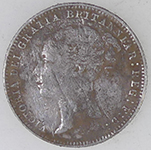 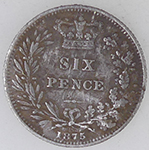 |
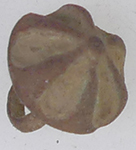 |
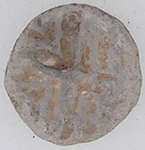 |
|||||||
| 1875 Victoria milled silver sixpence | 16thC Tudor button | 15thC lead token | |||||||
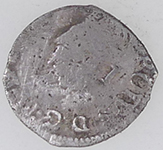 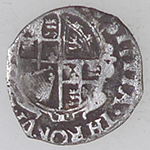 |
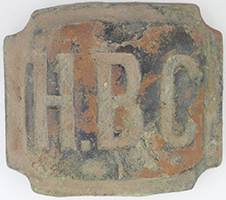 |
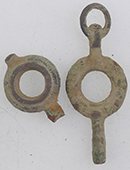 |
|||||||
| 1625 Charles 1st hammered silver penny | 1500-1700 mount | Georgian watch winders | |||||||
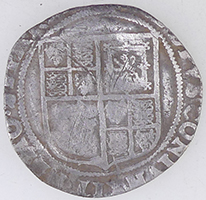 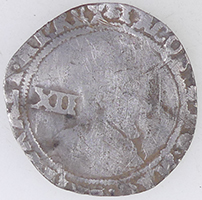 |
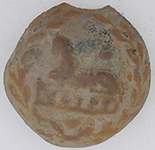 |
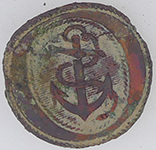 |
|||||||
| 1623-4 James 1st hammered silver shilling (12 pence) - Lis mint mark | South Wales Borderer's regiment button | RN Capt / Commander - 1787 RN Lieutenant - 1787 |
|||||||
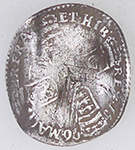 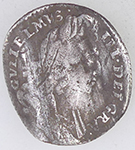 |
 |
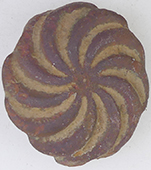 |
|||||||
| 1698 William III milled silver sixpence - love token | 1500-1700 mount | ||||||||
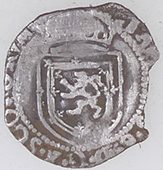 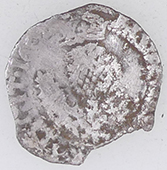 |
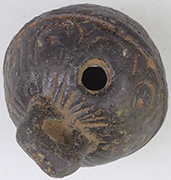 |
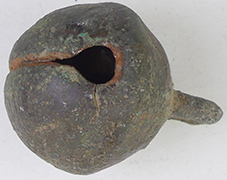 |
|||||||
1602 James VI of Scotland hammered silver Eighth Thistle Merk ( 20 pence) Obv IACOBUS 6 D.G.R.SCOTORUM - James VI by the grace of god king of the Scots Rev REGEM IOVA PROTEGIT 1602 - Jehovah protects the King 1602 |
18thC crotal bell | 18thC crotal bell | |||||||
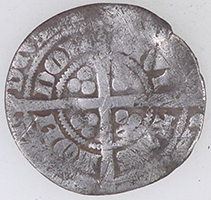 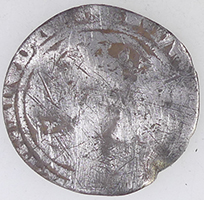 |
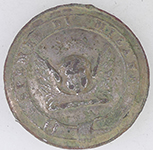 |
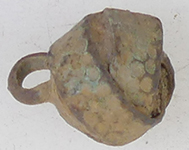 |
|||||||
1327 Edward III hammered silver groat Obv + EDW********* Rev CIVI/TAS/LON/DON - London mint |
19thC livery button | ||||||||
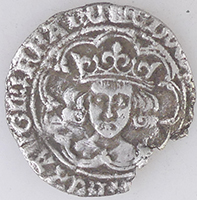 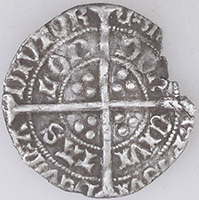 |
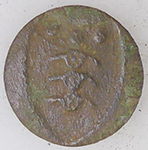 |
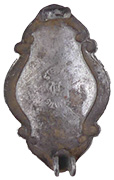  |
|||||||
1351-2 Edward III hammered silver groat (4 pence) - Series C Obv + EDW*** REX ANGL Z FRANC Rev CIVI/TAS/LON/DON - London mint |
18thC Royal Artillery button | Victorian silver brooch - sterling silver | |||||||
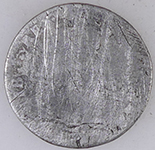 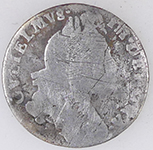 |
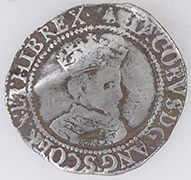 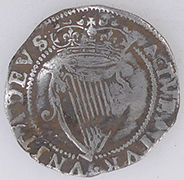 |
||||||||
| 1696 William III milled silver sixpence | 1603-4 Irish James 1st hammered silver sixpence - First coinage - love token | ||||||||
 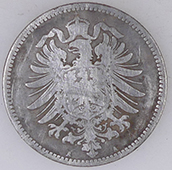 |
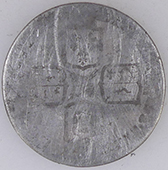 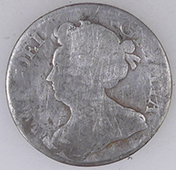 |
||||||||
| 1876 German milled silver 1 mark | 1711 Anne milled silver shilling | ||||||||
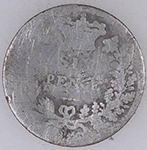 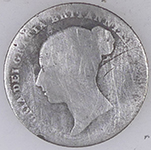 |
 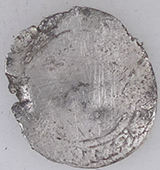 |
||||||||
| 19thC Victoria milled silver sixpence | 1560 Elizabeth 1st hammered silver half groat | ||||||||
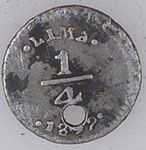 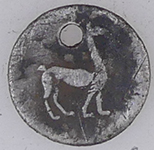 |
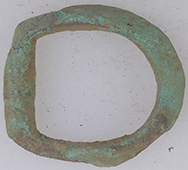 |
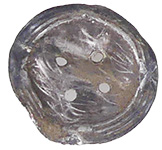 |
|||||||
| 1839 Peru milled silver 1/4 Real | Medieval buckle | Victorian silver button | |||||||
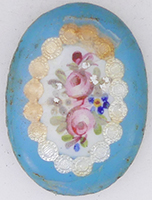 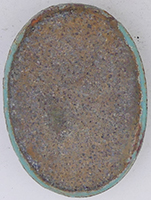 |
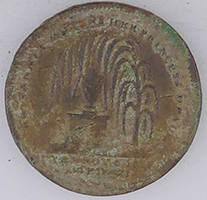 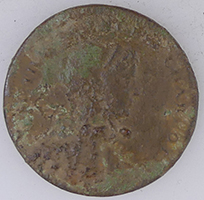 |
||||||||
| Georgian enameled pill box lid | 1817 Great Britain Princess Charlottes Memorial Death Medal | ||||||||
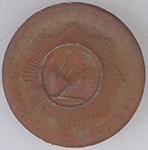 |
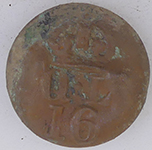 |
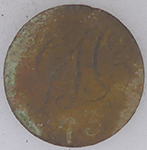 |
|||||||
| Victorian - The Great Eastern Railway button | O/R's - 1881-1901 THE 16TH. (THE QUEEN'S) LANCERS (1812 - 1922) |
Unknown 1800's 73rd Volunteer regiment GH ? |
|||||||
 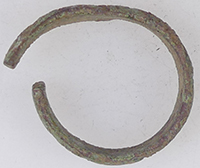 |
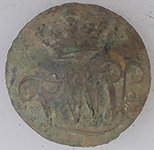 |
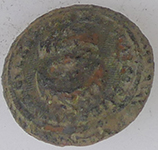 |
|||||||
| 17thC decorated copper ring | Unknown Loyal Volunteers button LW |
Victorian Eastern Railway and Steam ship company button | |||||||
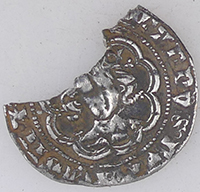 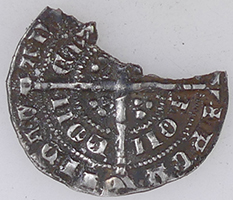 |
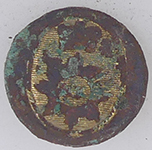 |
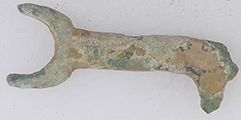 |
|||||||
1353 - May 1355 Edward III hammered silver groat Obv + EDWARDVS REX ANGLI Z *** Rev CIVI/TAS/LON/DON - London mint |
The East Essex Militia were formed in 1759 and became the Essex Rifles Militia in 1853 during this period they had five styles of known button | 15thC casket key | |||||||
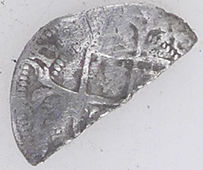 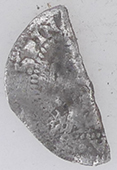 |
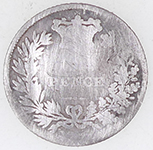 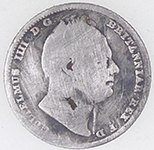 |
||||||||
| 16thC Elizabeth 1st hammered silver half groat | 1834 William IV milled silver sixpence | ||||||||
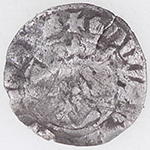 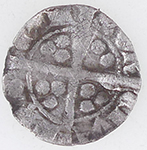 |
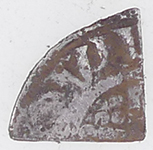 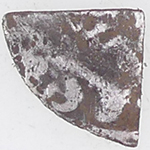 |
||||||||
1279 Edward 1st hammered silver penny Obv +EDWA***** hYB Rev CIVI/TAS/CAN/TOR - Canterbury mint |
1216 Henry III hammered silver short cross farthing | ||||||||
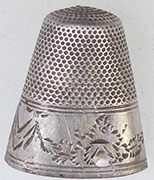 |
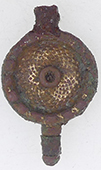 |
 |
|||||||
| Victoria silver thimble | Georgian watch winder | Copper toy soldier | |||||||
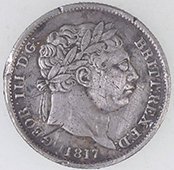 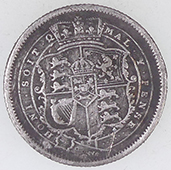 |
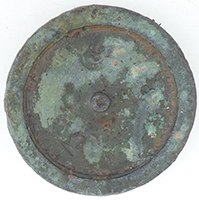 |
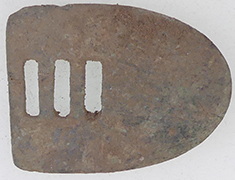 |
|||||||
| 1817 George III milled silver shilling | 17thC Charles trade weight - Crown C cipher | Large 18thC clog type fastener | |||||||
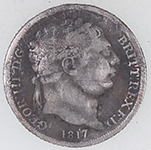 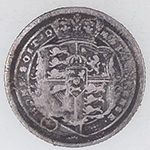 |
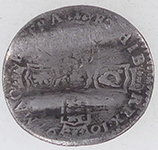 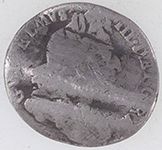 |
||||||||
| 1817 George III milled silver sixpence | 1697 William III milled silver sixpence - love token | ||||||||
 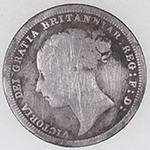 |
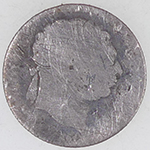 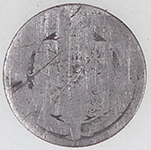 |
||||||||
| 1885 Victoria milled silver sixpence | 1816- 1820 George III milled silver sixpence | ||||||||
Unknown copper arrow shaped relic |
|||||||||
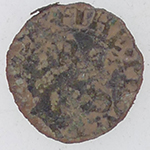 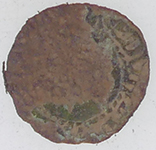 |
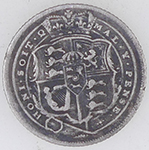 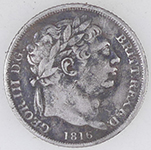 |
||||||||
| 17thC hammered copper trade farthing | 1816 George III milled silver sixpence | ||||||||
  |
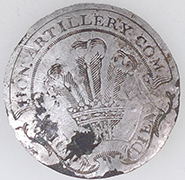 |
||||||||
1247 Henry III hammered silver voided half penny Rev VND/NIC - Moneyer Nicole of London mint |
Hon. Artillery Com. *ch Dien The Honorable Artillery Company is the oldest regiment in the British Army and the second most senior unit of the Territorial Army. By 1830 King William ordered that the uniform of the HAC should be based on that of the Grenadier Guards, except that where the Grenadiers wear gold, the HAC were to wear silver. |
||||||||
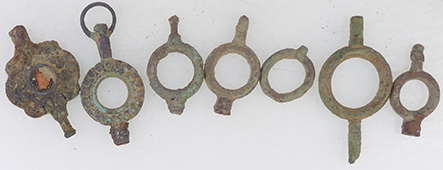 |
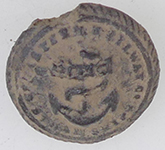 |
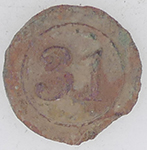 |
|||||||
| Georgian watch winders | Victorian Eastern Railway and Steam ship company button | c1784-1797 31st Regiment of foot button Notes: The 31st Regt of Foot gained the Huntingdonshire title in 1782. This style is believed to have stayed in use until around 1820. |
|||||||
 |
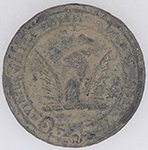 |
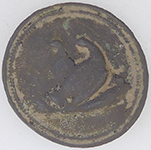 |
|||||||
| 19thC livery button | 19thC livery button | ||||||||
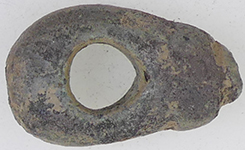 |
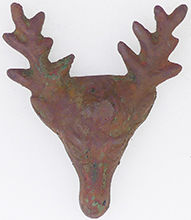 |
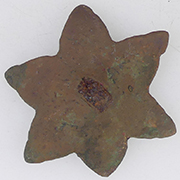 |
|||||||
| Roman Lorica mount | Georgian stag head copper mount | 17thC knife quillion | |||||||
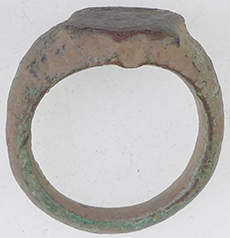 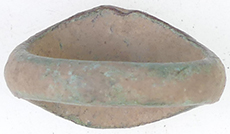 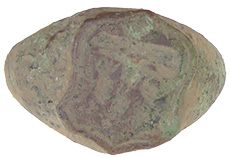 |
|||||||||
| Late medieval bronze signet ring | |||||||||
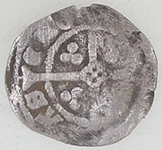 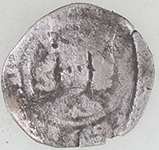 |
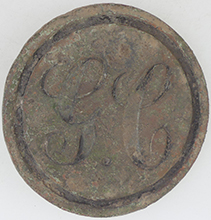 |
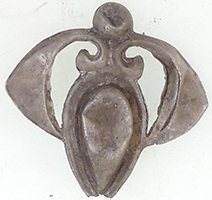 |
|||||||
1422- 60 Henry VI hammered silver penny Rose on breast - quadrefoil and pellet at centre of reverse cross Rev TAS/EBO - York mint |
1500-1700 mount | Edwardian silver jewelry item | |||||||
4.4g, 20.6mm Great Find! |
|||||||||
Ancient gold band - Bronze Age design c 1300 BC 3.8g, 28.6 mm L x 14.34 mm H x 0.6mm T |
|||||||||
1632-3 Charles 1st hammered silver half crown (30 pence) - harp mint mark 14.2g, 34.2mm x 3.1 mm T |
|||||||||
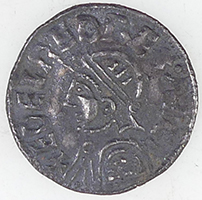 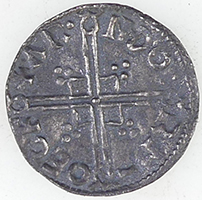 |
|||||||||
978-1016 Aethelred II Saxon hammered silver penny - sent to EMC for ID and recording Obv Armoured bust left to edge of coin, legend commences at lower left Obv + EÐELRED REX ANG, Rev Voided cross and quatrefoil +AR.NDO M-O EOF - York moneyer Arnthor 1.35g, 19.49mm Recorded as EMC 2025.0405.
This is a coin of the York moneyer Arnthor, reading +AR.NDO M-O EOF. EMC/SCBI has records of three other coins of Arnthor in this type, but this is the first single find recorded in EMC.
Best wishes,
Martin
|
|||||||||
 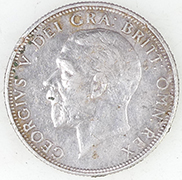 |
 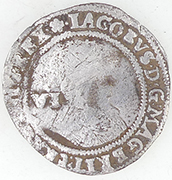 |
||||||||
| 1935 George V milled silver florin (24 pence) | 1605 James 1st hammered silver sixpence - Rose mint mark | ||||||||
 |
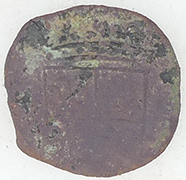  |
||||||||
| 1783 Phoenix Fire Office badge | 1682 Dutch duit hammered copper coin Dutch Colonial New York Penny
|
||||||||
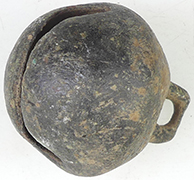 |
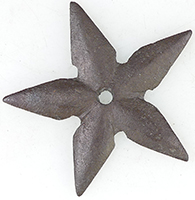 |
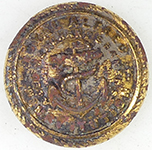 |
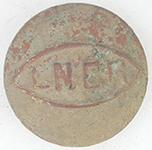 |
||||||
| 18thC crotal bell | Medieval spur rowel | Victorian button Royal Alfred Aged Merchant Seaman's Institution A "Royal Alfred Merchant Seaman button" likely refers to
a uniform button worn by residents or staff of the Royal Alfred Merchant Seaman's Society, a charity founded in 1856 to care for retired and disabled mariners. The society was renamed in honor of its first royal patron, HRH Prince Alfred, the Duke of Edinburgh
|
London North Eastern Railway button | ||||||
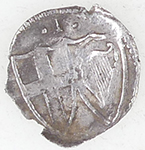 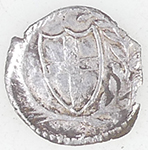 |
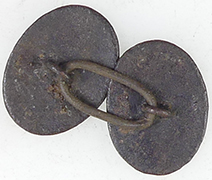 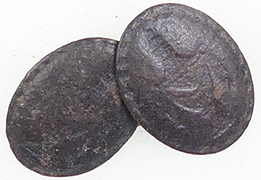 |
||||||||
| 1649 Commonwealth hammered silver penny | Georgian cuff links | ||||||||
A Post Medieval biface bone token, dating to the 19th century. The token is circular with 2d (Two pence) carved into each side. Obverse: 2d Reverse:
PAS :LON-CD7E3C |
|||||||||
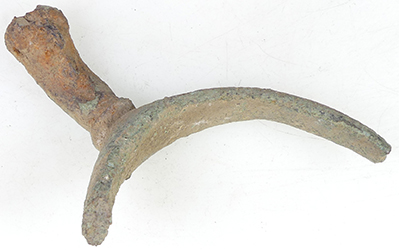 |
|
||||||||
| Georgian spur | Georgian monogrammed silver spoon | ||||||||
 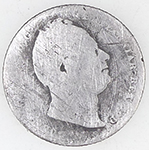 |
 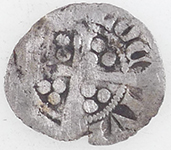 |
||||||||
| 1837 William IV milled silver sixpence | Unknown medieval hammered silver penny- not known legend errors Possible Continental imitation Obv +E *********** A Rev LOC/IVI From the end of the 12th century, the English penny, known for it's good silver, became a standard in north-west Europe. Merchants in the Low Countries (especially Flanders, Brabant, Hainaut) went to England to buy the high quality wool and paid with English pennies. |
||||||||
 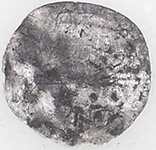 |
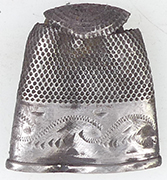 |
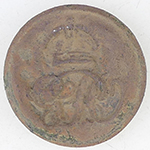 |
|||||||
| Medieval hammered silver long cross penny | Victoria silver thimble | George V period General Post Office button | |||||||
 |
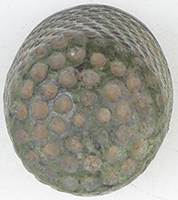 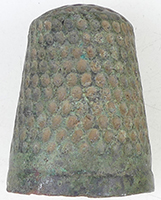 |
||||||||
| Georgian watch winders | Georgian thimble | ||||||||
 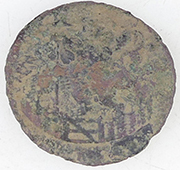 |
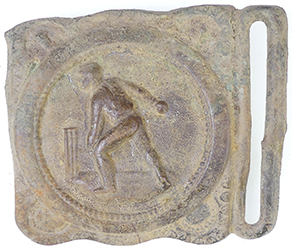 |
||||||||
| 1720 Dutch Holandia copper 1 duit | Victorian cricket club belt buckle | ||||||||
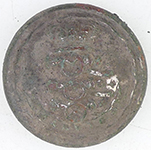 |
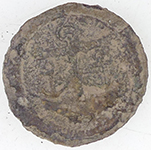 |
 |
 |
||||||
Royal artillery button Post 1831 version - three cannons pointing left with the Royal crown over- The design was changed in 1840 with the addition of the 'Ubique' scroll below the lower cannon |
RN Master button
RN Master - 1807-1825
|
Royal artillery button Post 1831 version - three cannons pointing left with the Royal crown over- The design was changed in 1840 with the addition of the 'Ubique' scroll below the lower cannon |
Victorian Eastern Railway and Steam ship company button | ||||||
|
 |
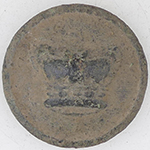 |
|||||||
| Victorian silver brooch | Victorian 1oz trade weight | Victorian Post Office button | |||||||
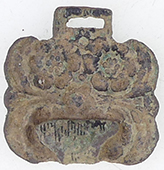 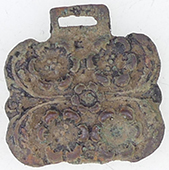 |
   |
||||||||
| 18thC clog fastener | Medieval key | ||||||||
|
|
||||||||
| Victorian silver brooch | 1935 Enameled trumpet badge Button and badge makers, medalists, based 116 & 118, Branstone Street., Birmingham 18; Harold William Miller succeeded founder William Miller in 1935; noted for production of earliest Robinson's Golly brooches |
||||||||
  |
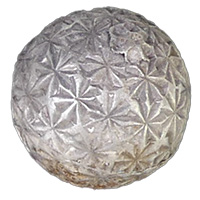 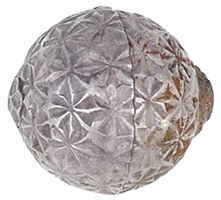 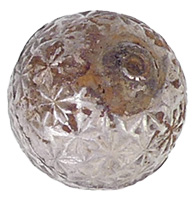 |
||||||||
| 16thC Tudor clothing fastener | Post medieval large silver pin head - reported as potential treasure | ||||||||
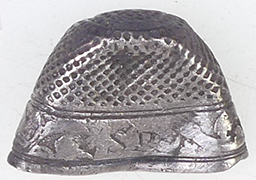 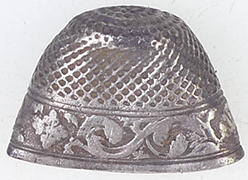 |
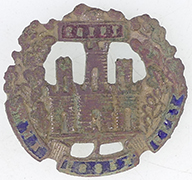 |
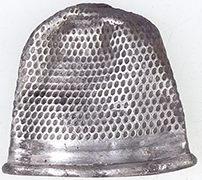 |
|||||||
| Georgian silver thimble - Initialed SR | WWI Essex Regiment sweetheart badge | Victorian silver thimble | |||||||
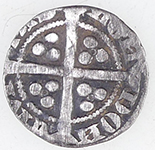 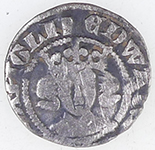 |
 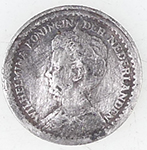 |
||||||||
1351 Edward III hammered silver penny - Pre treaty A Annulets in 4 quadrants in reverse pellets Obv EDWAR **ANGLIE Rev CIVI/TAS/LON/DON - London mint |
1916 Wilhelmina I Netherlands 10 Cents Silver Coin | ||||||||
 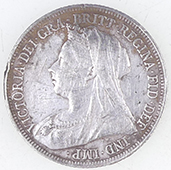 |
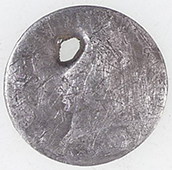 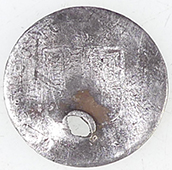 |
||||||||
| 1899 Victoria milled silver shilling (12 pence) | 1660's Charles II milled silver half groat | ||||||||
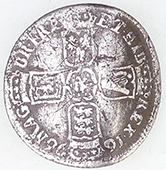 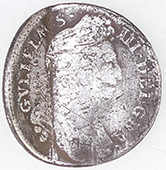 |
 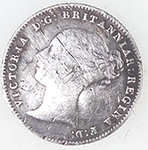 |
||||||||
| 1696 William III milled silver shilling | 1843 Victoria milled silver four pence | ||||||||
 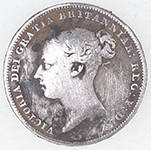 |
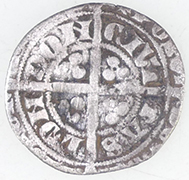 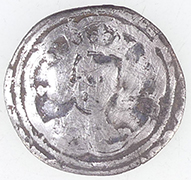 |
||||||||
| 1855 Victoria milled silver six pence | 1356-61 Edward III hammered silver half groat- Pre Treaty Series G Annulet in one quadant on reverse Rev CIVI/TAS/LON/DON - London mint |
||||||||
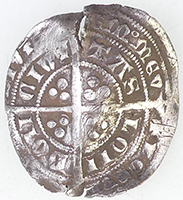 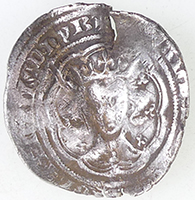 |
 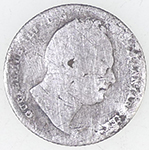 |
||||||||
1351-2 Edward III hammered silver groat - Cross 1 Type F Obv + EDWARD D G REX ANGL Z FRANC D HYB Rev CIVI/TAS/LON/DON - London mint |
1831 William IV milled silver sixpence | ||||||||
Bronze Age ingots and casting waste from Axe hoard reported to museum |
|||||||||
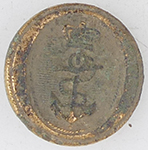 |
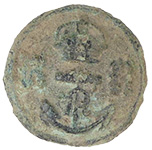 |
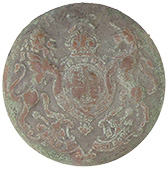 |
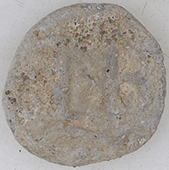 |
||||||
| RN Capt / Commander - 1812 RN Lieutenant - 1812 RN Midshipman - 1812 |
Royal Naval Volunteer Reserve Kings crown |
1890 General Service Army button | 17thC lead token | ||||||
 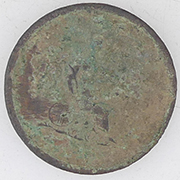 |
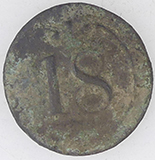 |
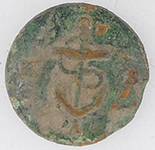 |
|||||||
Columbia token The 1820-1830 'Columbia' Farthing is a British-made copper token, likely minted in Birmingham, that features "COLUMBIA" on the obverse and a figure of Britannia on the reverse. It is an enigmatic piece, possibly produced with the intention of being exported to the new country of Colombia, but was not. It was never used there and remains primarily found in Britain, likely rejected because Colombia did not use such base metal coinage at the time
|
French Infantry Button 18th Line Regiment Circa 1803-1814 |
Capt / Commander - 1774-1787 period Unknown Navy button MSA |
|||||||
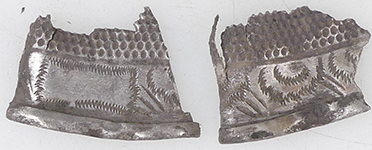 |
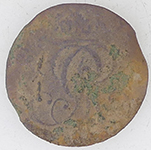 |
 |
|||||||
| Georgian silver thimbles | Georgian Royal Engineers button | First aid mount | |||||||
 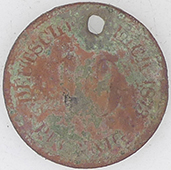 |
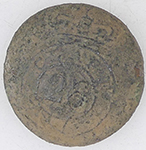 |
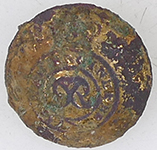 |
|||||||
| 1873 German 10 Pfennig copper coin | Unknown style of the 26th Regiment of Foot regiment button ( Cameronians ) |
Georgian Royal Engineers button | |||||||
|
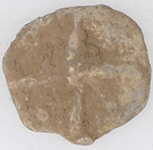 |
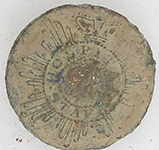 |
|||||||
| Medieval ring | 15thC lead token | Unknown Victorian 'Hospital Staff'' Army button Queens crown |
|||||||
Bronze Age ingots and casting waste from Axe hoard reported to museum 166g, 40mm L x 34mm H x 24.8mm T |
|||||||||
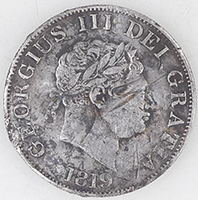 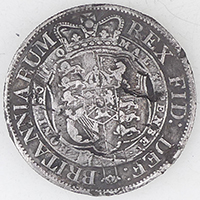 |
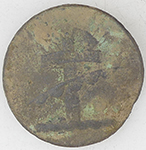 |
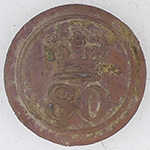 |
|||||||
| 1819 George III milled silver half crown (30 pence) | 19thC livery button | Victorian 80th Regiment of foot button | |||||||
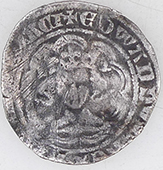 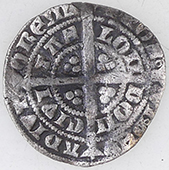 |
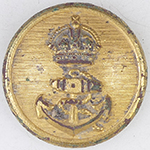 |
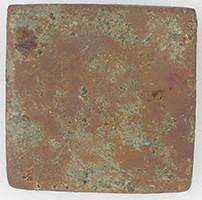 |
|||||||
1353- 1355 Edward III hammered silver half groat - Pre treaty series E , annulet stop on obv, IM Cross 2, closed C&E, 9 arches to tressure No trefoils over crown Obv + EDWARDVS REX *** II CI Rev CIVI/TAS/LON/DON - London mint |
Royal Navy Tunic Button, British Anchor Brass Reeded Button Kings crown |
1500-1700 MOUNT | |||||||
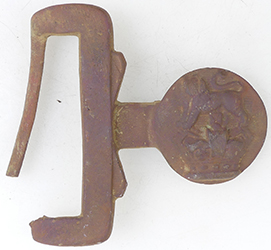 |
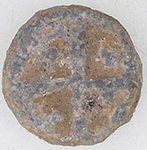 |
 |
|||||||
Army belt buckle Queens crown |
15thC lead token | Georgian button | |||||||
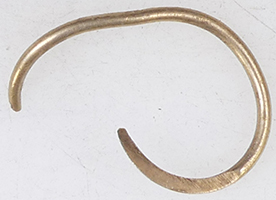 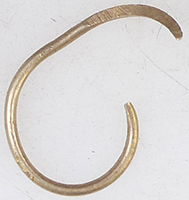 |
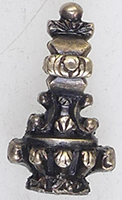  |
||||||||
Interesting looking gold band with chamfered edges 0.79g, 23.5mm L |
Victorian gold fob seal holder top | ||||||||
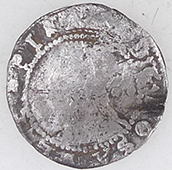 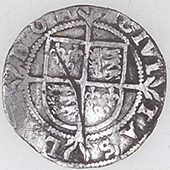 |
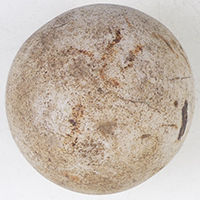 |
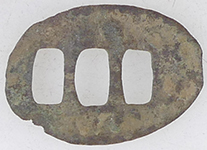 |
|||||||
| 1582 -3 Elizabeth 1st hammered silver half groat | 16thC Stone,1oz musket ball, 1.1 inch dia | 18thC clog fastener | |||||||
Bronze Age ingots and casting waste from Axe hoard reported to museum 17g, 33 mm L x 14.8mm W x 11.3mm T |
|||||||||
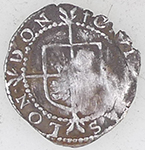 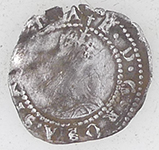 |
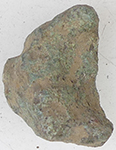 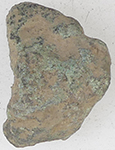 |
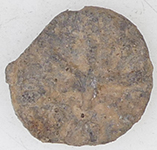 |
|||||||
| 1580-1 Elizabeth 1st hammered silver penny - Latin mint mark | Bronze Age ingots and casting waste from Axe hoard reported to museum 13.4g, 21.8 mm T |
15thC lead token | |||||||
 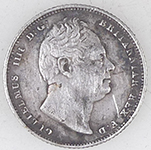 |
 |
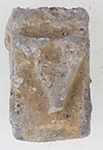 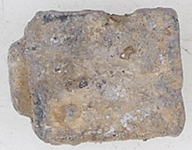 |
|||||||
| 1836 William IV milled silver sixpence | Victorian snake buckle | 19thC printing press block | |||||||
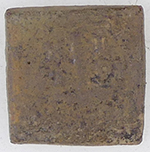 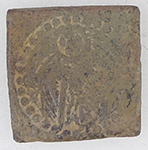 |
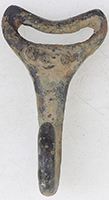  |
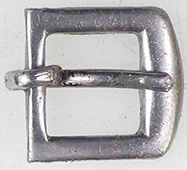 |
|||||||
| Medieval Angel coin weight | Post medieval strap hooked fastener | Victorian silver buckle | |||||||
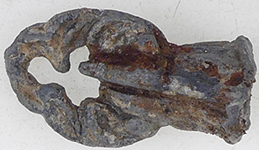 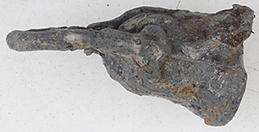 |
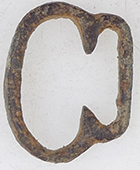 |
||||||||
| Medieval lead cord end | 1500-1700 buckle | ||||||||
Post medieval Animal headed coat hook |
|||||||||
Bronze Age ingots and casting waste from Axe hoard reported to museum 45mm L x 36mm H x 23mm T, 172g |
|||||||||
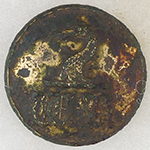 |
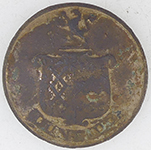 |
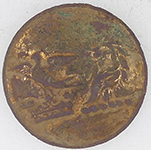 |
|||||||
| 19thC livery button | Victorian corporation button | 19thC livery button | |||||||
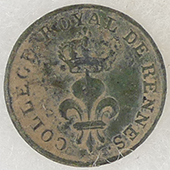 |
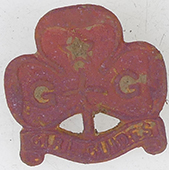 |
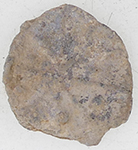 |
|||||||
1830 College royal de Rennes button Bouton COLLÈGE ROYAL DE Rennes . France, Vers 1830. |
1930's Girls Guides button | 15thC lead token | |||||||
Early medieval gilded mount |
|||||||||
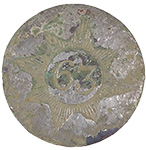 |
 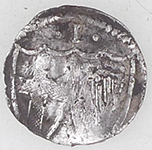 |
||||||||
Description: 63 incised within eight pointed star. Category: Regular Army; Type of button: Flat 22mm ; Metal: Copper Alloy silvered; Backmark: I McGOWAN GERRARD ST LONDON Date: c1800-1820 An officers example to the 63rd unusually with incised rather than raised numerals, known as the 63rd Regt of Foot 1758-1782 and then West Suffolk 1782-1881. |
1649 Commonwealth hammered silver penny | ||||||||
 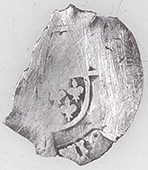 |
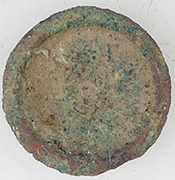 |
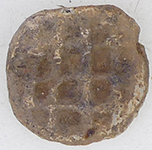 |
|||||||
| 1554 Mary hammered silver groat (4 pence) | Georgian trade weight | 17thC lead token | |||||||
 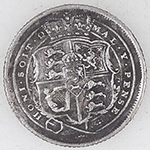 |
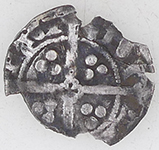 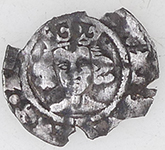 |
||||||||
| 1817 George III milled silver sixpence | 1454-1460 Henry VI hammered silver penny- Cross pellet Quadrefoil with Cross at centre of reverse cross Rev CIVI/TAS/EBO/RACI - York mint |
||||||||
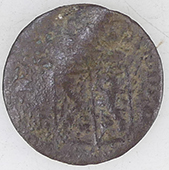  |
 |
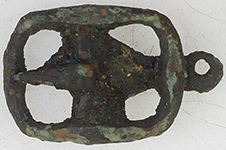 |
|||||||
| 1756 Gelderland Duit (Dutch) former duchy of the Netherlands | 20thC Britsh Railways button | Georgian spur buckle | |||||||
  |
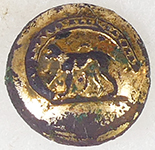 |
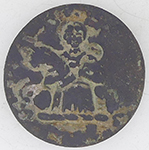 |
|||||||
| 1633 -4 Charles 1st hammered silver shilling - Portcullis mint mark | 19thC livery button | 19thC livery button | |||||||
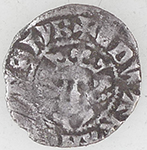 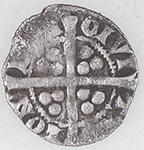 |
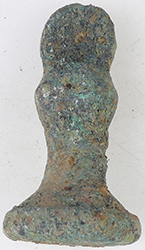 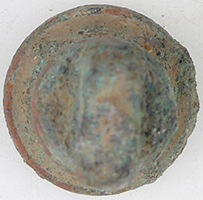 |
||||||||
1279 Edward 1st hammered silver penny Obv +EDWAR ANGL DNS hYB Rev CIVI/TAS/LON/DON |
Large Georgian bell type trade weight 54g, 2oz, 45mm H | ||||||||
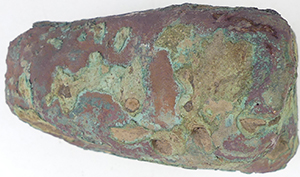 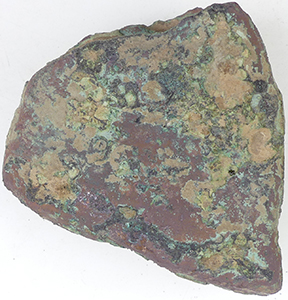 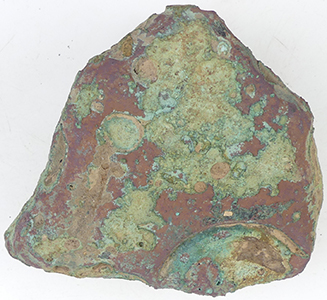 |
|||||||||
Bronze Age ingots and casting waste from Axe hoard reported to museum 3 63g, 57 mm H x 48mm L x 29mm W |
|||||||||
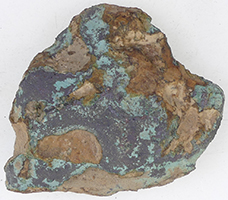 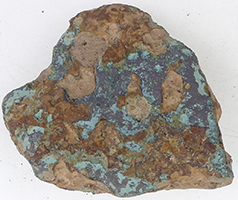  |
|
||||||||
Bronze Age ingots and casting waste from Axe hoard reported to museum 91.6g, 47mm L x 38mm H x 15.9mm T |
Georgian lead tobacco jar lid handles | ||||||||
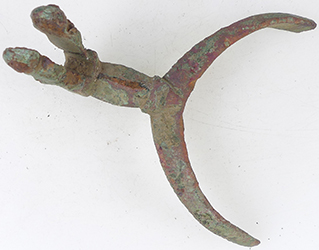 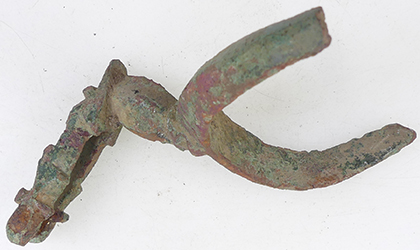 |
 |
||||||||
| Georgian spur | Unknown button | ||||||||
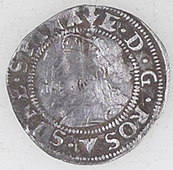 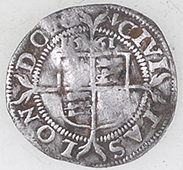 |
 |
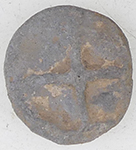 |
|||||||
| 1561-5 Elizabeth 1st hammered silver half groat -Pheon mintmark | Georgian advertising silver button John Crowther 116 Swallow Street Whipmaker 1818; 1784 Samuel Crowther whipmaker Swallow Street Crowther 116 Swallow Street |
15thC lead token | |||||||
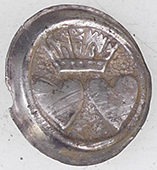 |
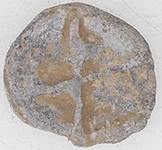 |
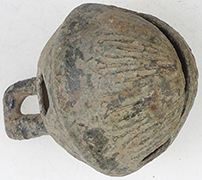 |
|||||||
| 17thC Charles II silver button - reported as treasure to museum | 15thC lead token | 18thC crotal bell | |||||||
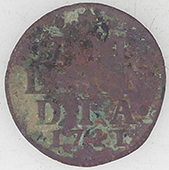 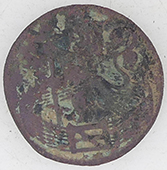 |
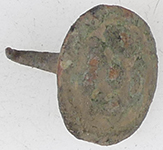 |
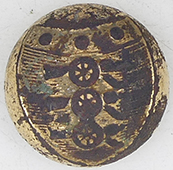 |
|||||||
| 1741 Dutch Holandia copper duit | 16thC Tudor rose mount | 18thC Royal Artillery button | |||||||
Bronze Age ingots and casting waste from Axe hoard reported to museum 101g, 34mm L x 35mm H x 21.8 nm T |
|||||||||
 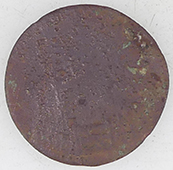 |
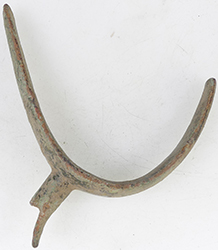 |
 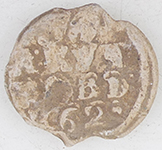 |
|||||||
| 1741 Dutch Holandia copper | Georgian spur | 1764 Russian lead bale seal | |||||||
|
 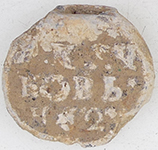 |
||||||||
| 1897 London mint mark silver tea spoon - ' b' data letter | 1794 Russian lead bale seal | ||||||||
 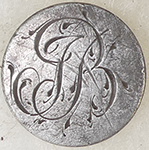 |
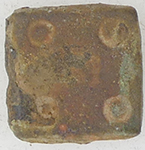 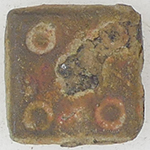 |
||||||||
| Georgian silver monogrammed button - Lion mark - illegible makers mark | 18thC bullion weight | ||||||||
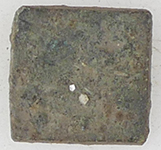 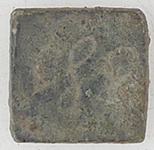 |
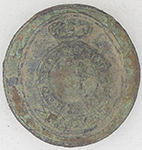 |
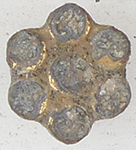 |
|||||||
| 18thC apothecary weight | One piece Navy buttons HONI SOIT QUI MAN Y PENSE PACKET Honi soit qui mal y pense (Old French: shame upon him who thinks evil of it) RN - Packet Service c.1800-1811 |
Post medieval gilded lead rivet | |||||||
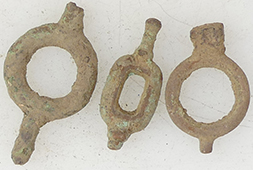 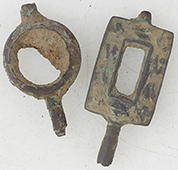 |
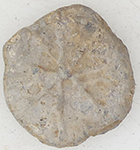 |
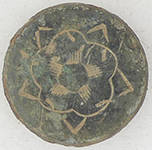 |
|||||||
| Georgian watch winders | 15thC lead toke | 18thC Royal Navy button | |||||||
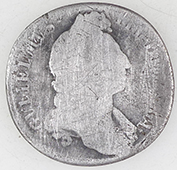 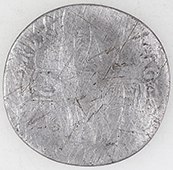 |
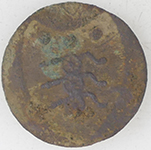 |
 |
|||||||
| 1696 William III milled silver shilling | 18thC Royal Artillery button | Unknown military button | |||||||
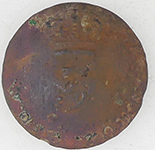 |
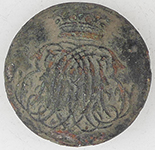 |
 |
|||||||
O/R's - 1780-1812 Pre 1820 3RD REGIMENT OF FOOT. / After 1881 :- The Buffs (East Kent Regiment) |
19thC livery button | Victorian enameled button | |||||||
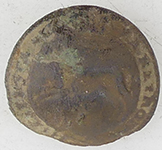 |
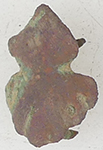 |
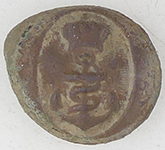 |
|||||||
Unrecorded 5th Dragoon guards button Description: Crowned Hannover Horse over V D.G with VESTIGIA NULLA RETRORSUM around. Category: Dragoons Type of button: Slightly Convex; Metal: Copper Alloy, silver gilded. Backmark: ; Date: c1780-1796 Crimera war period The 5th Dragoons became Princess Charlotte of Wales's Dragoon Guards in 1804 |
1500-1700 mount |
|
|||||||
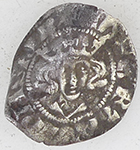 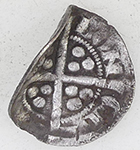 |
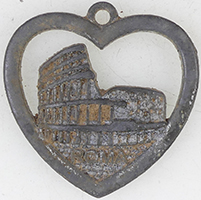  |
||||||||
1279 Edward 1st hammered silver penny Obv +EDWAR ANGL DNS hYB Rev CIVI/TAS/LON/DON - London mint |
Rome souvenir pendant | ||||||||
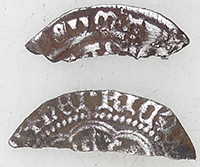 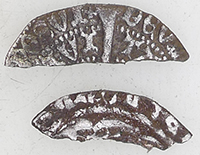 |
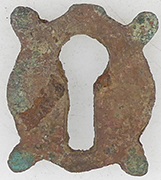 |
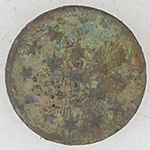 |
|||||||
Two Henry hammered silver groat fragments Obv +hENRIC * 'D *** Rev IVI/TA** - Civitas coin |
Georgian key hole escutcheon | Georgian button | |||||||
 |
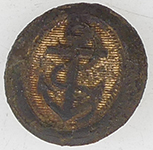 |
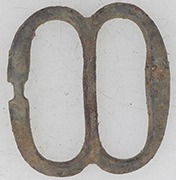 |
|||||||
| Georgian watch winders | RN Capt / Commander - 1787 RN Lieutenant - 1787 |
1500-1650 buckle | |||||||
 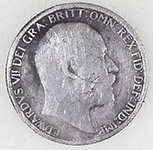 |
 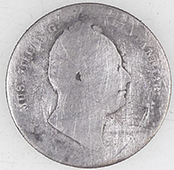 |
||||||||
| 1906 Edward VII milled silver sixpence | 1834 William IV milled silver shilling | ||||||||
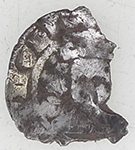 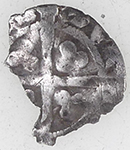 |
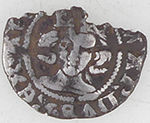 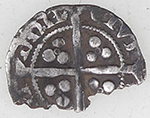 |
||||||||
1351- 1361 Edward III hammered silver penny- pre treaty Obv **ANGLI
|
1351- 1361 Edward III hammered silver penny- pre treaty Annulets at centre of reverse pellets Obv ** WARDVS REX AN*** Rev CIVT/***/DON - London mint |
||||||||
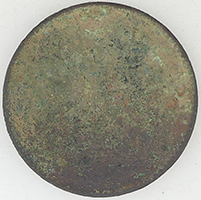  |
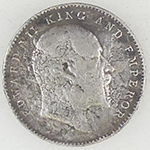  |
||||||||
ObverseCoat of arms of the East India Company Script: Latin Lettering: AUSP: REGIS & SENAT ANGLIÆ Translation: Auspicio regis et senatus angliæ (Under the auspices of the King and the Senate of England) ReverseDate above value Script: Latin Lettering: |
Indian 1904 Edward VII milled silver 2 Annas | ||||||||
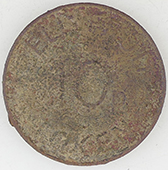 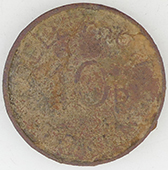 |
 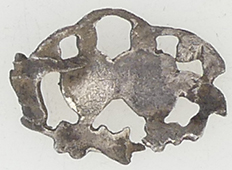 |
||||||||
| 20thC Bell Fruit 10 pence gambling token | Victorian gilded silver jewelery item | ||||||||
  |
|
||||||||
| 19thC printing press block | Vintage 6 sided Single level Put and Take Spinner Game, Circa 1940/50s. Maker - Unknown Marks - Stamped to the sides with the following ALL PUT, PUT TWO, TAKE ONE, PUT ONE, TAKE ALL and TAKE TWO Circa - 1940/50s Construction - Solid Brass Put & Take tops were very popular from the 19th century to the end of the 1940’s. They could be easily carried in the pocket and used anytime in a bar or home for an quick gambling session. Each player would contribute chips, coins or currency to a pot, they would then take turns spinning the top. There has been many variants of put and take spinners made throughout history; including ones with six sides, eight sides, ten sides and even 12; they come in single level and bi-level with the upper level showing if you won or lost, the bottom tier would tell you how much; the race horse tops, the bottom tier would indicate which horse won, and the upper tier would give the odds.
|
||||||||
Post medieval sword pommel |
|||||||||
  |
  |
||||||||
| 1600's Spanish Lion & Castle 8 Maravedis Cob | Medieval book clasp | ||||||||
  |
|
||||||||
| Russia, Paul I, 2 Kopeks, 1800, Ekaterinbourg | Roman key | ||||||||
 |
 |
|
|||||||
| Norwich Union button | Georgian mount | Medieval clasp | |||||||
 |
 |
  |
|||||||
| Georgian button | Capt / Commander - 1774-1787 RN Master & Mate - 1787-1807 |
1625 Charles 1st round coin weight - 5 shillings Obv Crown bust of Charles 1st Rev Crown V s |
|||||||
  |
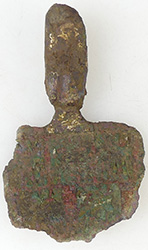 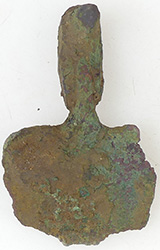 |
||||||||
| Georgian Moor's head mount | Medieval gilded and enamelled harness pendant | ||||||||
 |
|
||||||||
| 1640's 2oz Iron - 1 inch dia cannon ball | Georgian ‘ladies leg’ nut cracker | ||||||||
BC Roman silver coin sent for ID |
|||||||||
 |
  |
||||||||
| 18thC toy cannon | Medieval Lion headed "Three Legs of Mann" badge
|
||||||||
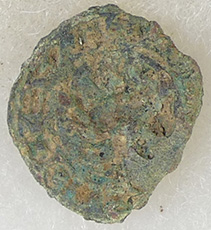 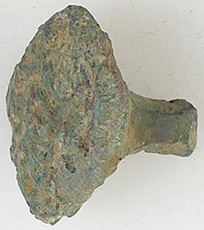 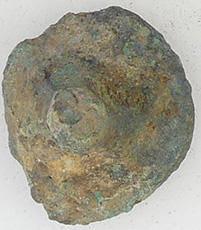 |
|||||||||
| Medieval seal matrix | |||||||||
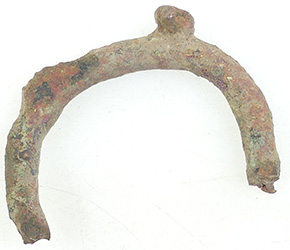 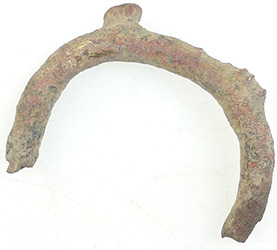 |
|||||||||
| Iron Age terret ring | |||||||||
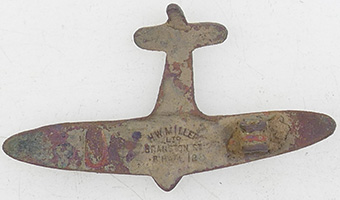 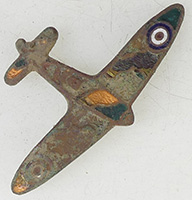 |
|||||||||
| Royal Air Force Spitfire camouflage fighter plane badge H.W.MILLER
A scarce original circa 1940's period 'RAF Spitfire Fighter Plane pin badge', gilt brass example inlaid with camouflage enamelling, Royal Air Force roundels to the wings; the reverse with maker's curved details 'H.W.Miller Ltd Branston St B'Ham 18' (1935-1958). |
|||||||||
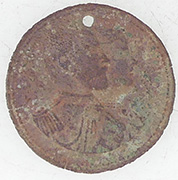 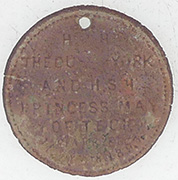 |
  |
||||||||
Medallion of The "Duke of York" (Prince George, later King George V) and "Princess May" (Victoria Mary of Teck) were a significant royal couple who married in 1893.Obverse
usts right Script: Latin Lettering: H.R.H. THE DUKE OF YORK * H.S.H PRINCESS MAY OF TECK ReverseCommemoration Script: Latin Lettering: EdgePlain |
1655 John Milbanch of Colchester hammered copper trade farthing | ||||||||
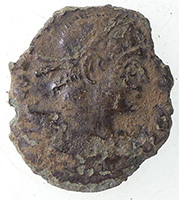 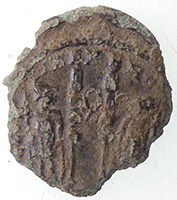 |
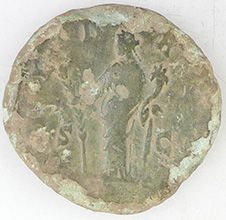 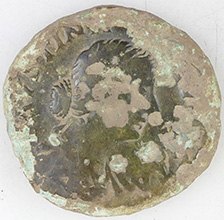 |
||||||||
| 4thC House of Constantine Roman bronze coin – 2 soldiers standing type | This appears to be a sestertius. Looking at the "...NTON..." legible on the obverse - it's almost certainly a fragment of "ANTONINVS PIVS" - Unfortunately, from the identification angle, that was all or part of literally dozens of emperors' names from 138 onward, We can tell from the un-bearded, somewhat effeminate-looking portrait that it isn't the golden-era emperor, Antoninus Pius himself, who was bearded like just about all emperors from Hadrian onwards, up until nearly the time of the Constantinians. My first guess would be the young Antoninus Pius, Caesar who was later to be known as Caracalla - his official name was Antoninus Pius and his portrait was grown-up as he aged. His earliest coins show him as a kid of 7 or 8, later he's shown as a "youth" (Teen) but when he had come into his own, after killing his brother, Geta - and quite likely his father, Septimius Severus as well to become sole ruler - he is portrayed with a beard growing in length and brutal shape until his "mature" portrait (he was all of 29 or so when he died) shows him in his full debauched "glory" with a severely trimmed beard. The reverse is a bit easier - this is Hilaritas - the allegorical personification of great celebration and happiness and somewhat wild, joyous times. She stands facing, head left, holding a long palm-branch and cornucopiae. Also, the couple of legible letters are in the right places for "HILARITAS" as the legend - the S - C in the field for Senatus Consultio which was on all Æ coins of the time is pretty clear. That's about all I can guess on the basis of these photos. If subsequent cleaning reveals anything else, send me a photo (of the obverse) and I'll amend this guesswork-based definition. I hope all is going well for you ML |
||||||||
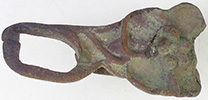 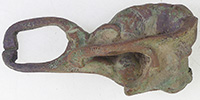 |
 |
 |
|||||||
| Georigian clasp | 18thC toy cannon with exploded end | William IV trade weight | |||||||
Unknown long decorated rod - possible medieval cloak hook 120mm Long |
|||||||||
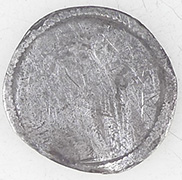  |
  |
||||||||
| 1571 Elizabeth 1st hammered silver sixpence | Medieval book clasp | ||||||||
  |
 |
 |
|||||||
| 1770's 9 shilling coin weight | Georgian cherub mount | Royal Scottish Reserve Regiment 1900-1901 (Boer War) | |||||||
1300 BC Bronze Age foundry hoard ingot 11 34.4g, 23.6 mm H x 19.8mm T |
|||||||||
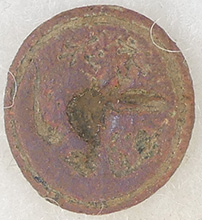 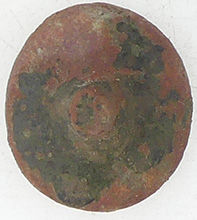 |
 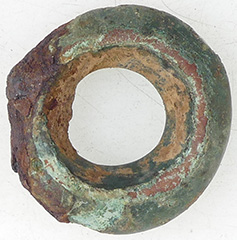 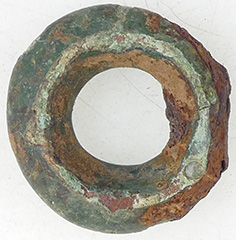 |
||||||||
| Medieval seal matrix | Roman terret ring 21.4g, 28.1mm dia |
||||||||
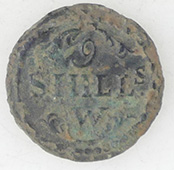 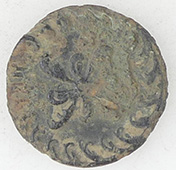 |
 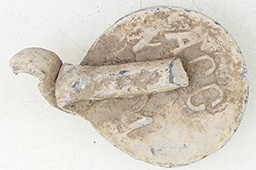 |
||||||||
1792 - 9 shilling coin weight
Obv Palm branches above value and weight Rev Circula wreath with double foliate cross at centre |
Post medieval lead cloth seal | ||||||||
|
|
